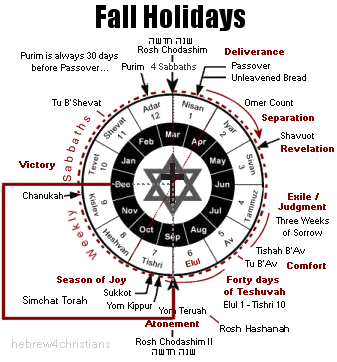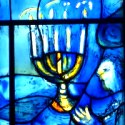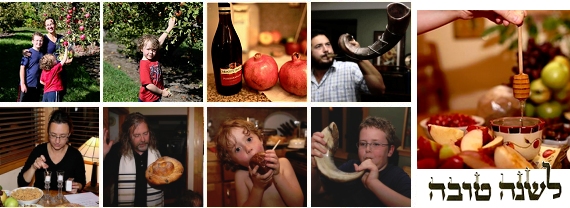|
Jewish Holiday Calendar
Note: For September 2014 site updates, please scroll past this entry....
The Jewish civil year begins in the fall, though the Biblical year begins in spring (Exod. 12:2). Preparations for the fall holidays begin with a thirty day period of teshuvah (repentance) during the (late summer) month of Elul. The following ten days begin with the Feast of Trumpets (i.e., Rosh Hashanah, on Tishri 1) and end with the Day of Atonement (i.e., Yom Kippur, on Tishri 10). These first ten days of the new year are called the "Ten Days of Awe" (i.e., aseret ye'mei teshuvah: עֲשֶׁרֶת יְמֵי תְּשׁוּבָה), or simply the Jewish "High Holidays." Just five days after the solemn time of Yom Kippur begins the joyous week-long festival of Sukkot ("Tabernacles"), which is immediately followed by the celebration of Simchat Torah.
The Fall Holidays:

The fall festivals prophetically indicate the Day of the LORD, the second coming of Yeshua, the great national turning of the Jewish people, and the establishment of the reign of the Messiah upon the earth during the Millennial Kingdom in the world to come.
Note that in accordance with tradition, the following holiday dates begin at sundown:
- Month of Elul (begins Mon., Aug. 25th, 2014)
- Month of Tishri (begins Wed., Sept. 24th, 2014)
- Month of Cheshvan (begins Thurs., Oct. 23rd, 2014)
- Month of Kislev (begins Sat., Nov. 22nd, 2014)
- Four Sabbaths: Vayetzei, Vayishlach, Vayeshev, Miketz
- Dates for Chanukah 2014:
- 1st candle Tues., Dec. 16th [Kislev 25]
- 2nd candle Wed., Dec. 17th
- 3rd candle: Thurs., Dec. 18th
- 4th candle: Fri., Dec. 19th [Shabbat Miketz]
- 5th candle: Sat., Dec. 20th
- 6th candle: Sun., Dec. 21st
- 7th candle: Mon., Dec. 22nd (Tevet 1)
- 8th candle: Tues., Dec. 23rd [Zot Chanukah]
September 2014 Updates
Our Daily Teshuvah...

[ The following is related to the High Holidays and the "Season of Repentance"... ]
09.30.14 (Tishri 6, 5775) Teshuvah ("repentance") is described as "turning" to God, though practically speaking it is a repeated turning, that is, a turning to God in the moment of ambiguity, pain, distress... It is in the midst of the ego's clamor, before the parade of worldly desire or pressure, in the crucible of "everydayness" that we must "come to ourselves" and find true wonder. In that sense, teshuvah is a sort of focus, a direction, a seeking, and a center of life, the place of constant repair for the inner breach we constantly feel.
The question may be asked, however, whether you really want God - the Living God - to be intimately present in your life. "Repentance means unlearning all the self-conceit and self-will that we have been training ourselves into... It means killing part of yourself, undergoing a kind of death" (C.S. Lewis). Indeed, "nothing is more certain: coming close to God brings certain catastrophe [to the ego]. Everyone whose life does not bring relative catastrophe has never even once turned as a single individual to God; it is just as impossible as it is to touch the conductors of a generator without getting a shock" (Soren Kierkegaard).
Repent one day before you die... "In eternity you will not be asked how large a fortune you are leaving behind - the survivors ask about that. Nor will you be asked about how many battles you won, about how sagacious you were, how powerful your influence - that, after all, becomes your reputation for posterity. No, eternity will not ask about what worldly goods remain behind you, but about what riches you have gathered in heaven. It will ask you about how often you have conquered your own thought, about what control you have exercised over yourself or whether you have been a slave, about how often you have mastered yourself in self-denial or whether you have never done so" (Kierkegaard).
Just as God humbled Israel with manna in the desert, so He humbles us. "Give us this day our daily bread and deliver us..." The purpose of affliction is ultimately good and healing: God humbles us with manna, the "bread of affliction, so "that he might make you know that man does not live by bread alone, but man lives by every word that comes from the mouth of the LORD" (Deut. 8:3). In other words, God uses tzuris to lead us to do teshuvah and accept the truth. We often pray that our problems be taken away, but God sometimes ordains these very problems so that we will turn and draw near to Him... We are being weaned from this present age to be made ready for heavenly glory, for things unimaginably wonderful, soon to be revealed to you. Chazak – stay strong in the Lord, friends.
"Blessed be the God and Father of our Lord Yeshua the Messiah, the Father of mercies and God of all comfort (אַב הָרַחֲמִים וֵאלהֵי כָּל־נֶחָמָה), who comforts us in all our affliction, so that we may be able to comfort those who are in any affliction, with the comfort with which we ourselves are comforted by God" (2 Cor. 1:3-4).
Come just as you are...
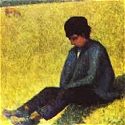
09.30.14 (Tishri 6, 5775) Some people seem to think that we first must repent and then we will encounter the Lord, but it's actually the other way around: we first encounter the Savior and then we learn the meaning of repentance. Thus Paul's eyes were opened after he was first blinded by the light (Acts 9:3-6). Likewise, it is only after we have met the Lord that we begin to understand our own blindness of heart, but as learn to see more clearly, we encounter more and more of his love (Rom. 5:20). As Yeshua said, "My yoke is pleasant (χρηστὸς) and my burden is light (Matt. 11:30). Teshuvah, then, is a progressive and ongoing process of awakening, as we learn to love God and to accept ourselves, despite our struggle with sin. As St. Anselm once prayed: "O Lord, grant us grace to desire thee with all our hearts, that so desiring, we may seek and find thee, and so finding thee, may love thee, and loving thee may hate those things from which you have redeemed us." Amen.
We encounter the Lord "just as we are," by means of his gracious intervention in our lives, and so we continue to live by faith in God's grace (indeed, what we call "sanctification" is often just "catching up" with the miracle of his revelation to us). And we always come to God "just as we are," since we are never more than what we are in the truth: "by the grace of God I am what I am," as Paul said. "For all things come from You, and from your hand we give back to you" (1 Chron. 29:14). Therefore the Spirit says, "Come just as you are, or you may never come at all...."
A prayer to the One calling you to come: "I come to you just as I am - needy, sick within, weary, and broken... I come seeking your love; I come because you invited me to come: I open my heart, such as it is, to you; please join me here, in this place of my need, in this place of pain, and wrap me your comfort. I can only love you as I know your love, Lord Yeshua, so please help me to know your love in the truth. Amen."
 |
Yom Kippur Mercies...
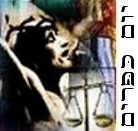
[ Yom Kippur begins this Friday, an hour before sundown... ]
09.30.14 (Tishri 6, 5775) Rosh Hashanah is called Yom Ha-Din (יוֹם הַדִּין), the Day of Judgment, whereas Yom Kippur is called Yom Ha-Rachamim (יוֹם הָרַחֲמִים), or the Day of Mercies, which suggests that God is first revealed as our Creator and Judge before He is known as our merciful Savior. This is hinted in the two accounts of creation, where God is first revealed as Elohim (Gen. 1:1), but later is revealed as YHVH (יהוה) when He breathed life into man nishmat chayim, the breath of life (Gen. 2:4). It is somewhat odd, however, that during Rosh Hashanah we do not approach God as our Judge, beating our breast in sorrow during confession of sin, as we do on Yom Kippur. Some say the reason we celebrate, eating special foods, rejoicing, listening to the shofar, is because we rejoice in the kingship of God as His royal children, and only later do we appeal to Him as merciful Judge in light of His revelation as YHVH, our Savior, Redeemer, and Lord. As believers in Yeshua, we have all the more reason to rejoice on Rosh Hashanah, since at the cross Yeshua took upon Himself our judgment to give us everlasting mercy from God.
 |
Yom Kippur and Purim...
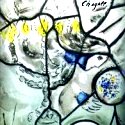
09.30.14 (Tishri 6, 5775) The holiday of Yom Kippur (the Day of Atonement) is also known as Yom Kippurim in the Torah (יוֹם כִּפֻּרִים, see Lev. 23:28), which can be read as Yom Ke-Purim, a 'day like Purim' (i.e., יוֹם, "day" + כְּ, "like" + פֻּרִים, "purim"). Both Purim and Yom Kippur celebrate our deliverance from the great enemies of sin and death, and both holidays foreshadow the great purim (deliverance) we have in Yeshua our LORD. Note further that the Hebrew word for "year" (i.e., shanah: שׁנה) has the same letter value Yom ha'kippurim (i.e., יוֹם הַכִּפֻּרִים, see Lev. 23:27), which suggests that God's deliverance and atoning love extends to us every day of the year.
The "ultimate" meaning of Yom Kippur is to be forgiven and accepted by God on account of the salvation secured by Yeshua the Messiah at the cross... Our deliverance depends not only on the substitutionary death of Yeshua as our kapparah (atonement), but also on the substitutionary life He lived (and still lives) as our Mediator. Amen, as it is written: "The LORD is alive and blessed is my Rock (חַי־יְהוָה וּבָרוּךְ צוּרִי); and ascended is the God of my salavtion (וְיָרוּם אֱלוֹהֵי יִשְׁעִי) (Psalm 18:46). Yeshua fulfills the Torah on our behalf (Rom. 10:4). The cure for our lawlessness is not more laws but a deeper sense of God's grace given to us in Yeshua, the Tzaddik who kept the law perfectly and ransomed us from its righteous judgment. Because of Yeshua we have grace and peace (shalom) with God.
Note: For more on this subject, see "The Purim - Yom Kippur Connection."
 |
Yom Kippur and God's Name...
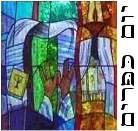
[ The following is related to Yom Kippur which begins this Friday, an hour before sundown... ]
09.29.14 (Tishri 5, 5775) Yom Kippur was the only time when the High Priest could enter the Holy of Holies and call upon the Name of YHVH (יהוה) to offer blood sacrifice for the sins of the people. This "life for a life" principle is the foundation of the sacrificial system and marked the great day of intercession made by the High Priest on behalf of Israel. For this reason it was also called the "Day of God's Mercy," or the "Day of God's Name." This alludes to the revelation of the Name YHVH (יהוה) and the attributes of God's Compassion after the sin of the Golden Calf (Exod. 34:6-7). How much more, then, is Yom Kippur the "Day of Yeshua's Name" since He secured for all of humanity everlasting kapparah (atonement)? Yeshua the Messiah is Moshia ha'olam (מוֹשִׁיעַ הָעוֹלָם), the Savior of the world; He alone possesses the "Name above all other Names" (Phil. 2:9-10; Acts 4:12). It is altogether fitting, then, that God's "hidden Name" (i.e., shem ha-meforash: שֵׁם הַמְּפרָשׁ) was proclaimed before the kapporet (the cover of the Ark of the Covenant) in the Holy of Holies while atonement for our sins was made through the sacrificial blood.
This gives us a whole new perspective on Paul's words (Rom. 10:9): "if you confess with your mouth that Yeshua is LORD (יהוה) and believe in your heart that God raised Him from the dead (i.e., that his blood was shed and presented on your behalf upon the heavenly kapporet), then you will be saved (that is, you will be reconciled to God and made a partaker of the atoning work of Yeshua). Surely the Apostle Paul, a zealous rabbi who diligently studied Torah in Jerusalem under Rabbi Gamaliel (who was himself the grandson of the renowned Rabbi Hillel the Elder), understood the theological implications when he stated that the prophecy: "And it shall come to pass that everyone who calls on the Name of the LORD (בְּשֵׁם יְהוָה) shall be saved" (Joel 2:32) applied directly to Yeshua (Rom. 10:10).
 |
Jesus in Context...
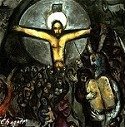
09.29.14 (Tishri 5, 5775) An essential and basic principle of Bible interpretation is stated in the axiom: "a text without a context is a pretext," and therefore we must endeavor to understand the New Testament in light of the Torah, not the other way around... Without the context of Torah, the meaning and terms of the New Testament will be obscure and subject to misunderstanding. Indeed, we must remember that the Messiah was "embedded" in the Jewish culture of his day (Gal. 4:4-5), and was fluent in Torah reading and study (Luke 4:16-21; John 4:22). Moreover, Yeshua plainly said that the Jewish Scriptures testify of Him: "And beginning with Moses and all the Prophets, he interpreted to them in all the Scriptures the things concerning himself" (Luke 24:27; John 5:39). We study Torah to know Yeshua, the "Living Torah" better, as he said: "Therefore every scribe who has been trained for the kingdom of heaven is like a master of a house, who brings out of his treasure what is new and what is old" (Matt. 13:52).
 |
The Days of Awe...

[ The solemn holiday of Yom Kippur begins Friday, October 3rd at sundown this year... ]
09.28.14 (Tishri 4, 5775) According to Jewish tradition, on Rosh Hashanah (i.e., Tishri 1) the destiny of the righteous, the tzaddikim, are written in the Book of Life (סֵפֶר הַחַיִּים), and the destiny of the wicked, the resha'im, are written in the Book of Death (סֶפֶר הַמָּוֵת). However, most people will not be inscribed in either book, but have ten days -- from Rosh Hashanah until Yom Kippur -- to repent before "sealing their fate." On Yom Kippur, then, everyone's name will be written in one of the books. The ten days between Rosh Hashanah and Yom Kippur are therefore called Aseret Yemei Teshuvah (עֲשֶׂרֶת יְמֵי תְּשׁוּבָה) - the "Ten Days of Repentance" - because personal repentance can affect the divine decree for good.
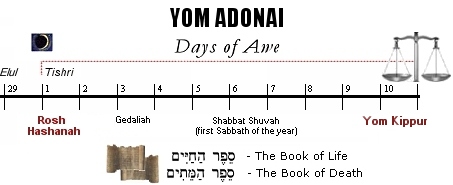 |
Followers of Yeshua we are not legalists, of course, nor do we agree with the rabbis who claim that Rosh Hashanah is a day of our judgment, since that has judicially been taken care of at the cross of Messiah -- "Judgment Day" happened when Messiah was crucified for our sins. "He declared us not guilty because of his gracious love; and now we know that we are heirs of eternal life" (Titus 3:7). Our faith in Yeshua forever seals us in the Lamb's Book of Life (סֵפֶר הַחַיִּים)! Nevertheless we must turn to Him every day, we must walk in the light of his heart, and therefore the call to teshuvah (repentance) is always timely. Moreover there is a prophetic aspect to this season, as Yom Teruah (i.e., Rosh Hashanah) represents the "Day of the LORD" (יוֹם יְהוָה) and the imminent apocalyptic judgment of the present world... Just as the spring festivals foretold Messiah's first advent, so the fall festivals foretell his second coming... Moreover, "teruah" (תְּרוּעָה) is the blast of a shofar, the "calling up" signal for those who belong to Messiah; the "opening of the gate" to the Wedding of the Lamb! May God help us be ready to soon see our King!
Note: for more on this important subject, including the trust that we are forever "sealed for good" in the Lamb of God's Book of Life, see "Getting Ready for the Days of Awe."
 |
Shanah Tovah, friends!
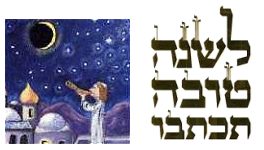
09.28.14 (Tishri 4, 5775) Happy New Year - Shanah Tovah - friends! And may this coming year be good and sweet for you. Here are a few pictures taken during our celebration for the new year. As you can see, the boys are getting bigger: Josiah is now nine and Judah is five! Thank you so much for praying for these precious little guys, and for our family, too.
Left-to-right (top): 1. At the apple orchard [Elul 25]; 2. Judah finds an apple; 3. pomegranates;
4. hearing the shofar: tekiah, shevarim, teruah! 5. apples and honey.
(bottom): 1. Yom Tov candles; 2. round challah; 3. Judah; 4) Josiah blows the shofar
בַּחֲצצְרוֹת וְקוֹל שׁוֹפָר
הָרִיעוּ לִפְנֵי הַמֶּלֶךְ יְהוָה
ba·cha·tzotz·rot · ve·kol · sho·far
ha·ri·u · lif·nei · ha·me·lekh · Adonai

"With trumpets and the sound of the shofar
shout for joy before the King, the LORD!"
(Psalm 98:6)

Listen to the Shofar:

We sincerely wish you "shanah tovah u'metukah ba'Adoneinu Yeshua ha-Mashiach" - a good and sweet year in our Lord Jesus the Messiah! May the LORD God heal you, body and soul; may He ease your pain, increase your strength, and release you from all your fears... May blessing, love, joy, and true shalom surround you and fill you with ongoing wonder and thanks. In the Name above all Names we pray: Amen.
Keep on Returning...
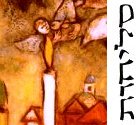
09.25.14 (Elul 30, 5774) This coming Shabbat is called "Shuvah" because we are called to return (shuv) to God: "Return (שׁוּבָה), O Israel, until (עַד) the LORD is your God" (Hos. 14:1). Note the grammar here. We are called to repent until the LORD becomes "your God," that is, until you surrender yourself to His presence and love. You return as you "set the Lord always before you," practicing His presence, and knowing him in all your ways.
שׁוּבָה יִשְׂרָאֵל עַד יְהוָה אֱלהֶיךָ
כִּי כָשַׁלְתָּ בַּעֲוֹנֶךָ
shu·vah · Yisrael · ad · Adonai · E·lo·he·kha
ki · kha·shal·ta · ba·a·vo·ne·kha

"Return, O Israel, until the LORD is your God,
for you have stumbled because of your iniquity."
(Hosea 14:1)

Teshuvah and confession go hand in hand. Confession (ὁμολογία) means bringing yourself naked before the Divine Light to agree with the truth about who you are. Indeed, the word "homologeo" means "saying the same thing" - from ὁμός (same) and λόγος (word). In Modern Hebrew teshuvah means an "answer" to a shelah, or a question. God's love for us is the question, and our teshuvah – our turning of the heart toward Him – is the answer for our broken hearts. Teshuvah is one of the great gifts God gives each of us – the ability to turn back to Him and seek healing for our brokenness. May we turn to Him now...
Shanah Tovah, and may you be inscribed in the Lamb's book of life (סֵפֶר הַחַיִּים אֲשֶׁר לַשֶּׂה) for good, friends! Shalom in Yeshua our Lord.
Teshuvah's Passion...

[ The holiday of Rosh Hashanah begins this evening at sundown... Shana Tova chaverim! ]
09.24.14 (Elul 29, 5774) The sages say the Hebrew word for sin, chet (חַטְא), is written with a silent Aleph (א) because when we sin, God our Lord (אַלּוּף) is present, because without his power no one could lift his hand to do anything great or small. Here we note the terrible thought that our sin is witnessed by God himself, a pain that pierces his very heart.
נַחְפְּשָׂה דְרָכֵינוּ וְנַחְקרָה
וְנָשׁוּבָה עַד־יְהוָה
nach·pe·sah de·ra·chey·nu ve·nach·ko·rah
ve·na·shu·vah ad Adonai

"Let us search and examine our ways
and turn back to the LORD!"
(Lam. 3:40)

During Rosh Hashanah and the High Holidays, we examine our lives and confess our sins (חֶשְׁבּוֹן הַנֶּפֶשׁ). Though God forgives us because of Yeshua's sacrifice, we nevertheless are called to turn away from sin and draw closer to the heart of the Father (1 John 1:9; James 4:8). The cross does not give us license to sin, of course, but should awaken within us a desire to live in godly reverence by the power of God's Spirit...
Rabbi Bunam told the parable of how a father made a loan to his son to help him start a business. When the time for repayment came, he learned his son had used the money wisely, and therefore he made him a gift of the amount loaned. Later the father did the same for another son, but when time for repayment came, he learned that the son had used the investment unwisely, so to prevent further losses, he compelled his son to give up the business. It is the same with us. God loans us the impulse to judge ourselves and repent of our unworthy deeds. If we use this impulse wisely, he gives us further resolve to walk in righteousness. But if we disregard the impulse and do nothing, God takes it back, and we remain stuck in our present condition (Rom. 1:28). May God help us turn to Him...
 |
How to do Teshuvah...

09.24.14 (Elul 29, 5774) We learn teshuvah by doing teshuvah... 'A man once approached R' Israel of Rizhin and said to him, 'Rebbe, I so wish to repent, but I don't know what to do.' 'And to sin, you knew what to do?' 'Yes, but that was easy. First I sinned, then I knew.' 'Exactly. Now do the same the other way around. Start by repenting; you'll know later.' As Yeshua said, "If anyone wants to do God's will, he will know..." (John 7:17).
The same is true about all the mo'edim (i.e., holidays). For instance, you learn about Passover by actively participating in a Seder, not just reading about it in a book... We know something with our whole heart when we engage our senses, our bodies, etc. through our participation, by making it "our own." The life of faith is not a "spectator sport."
It is often not what we see that matters, but what we don't see, what we overlook... We see our sin, our inability, our brokenness, but we overlook compassion, power, and healing from heaven. We must learn to see the "white spaces" between the letters, to train ourselves to see the good in every circumstance (even our struggle), to cultivate inner vision and awareness. Teshuvah means changing not only our thinking, but fixing our heart's attitude by bringing love, joy, and peace to our experience. In this way, re-learning to see is not unlike "getting down on your knees" within yourself as you encounter the world around you. It is a way to "practice the presence" of Messiah at all times...
 |
Returning Home...

09.24.14 (Elul 29, 5774) "If we confess our sins..." (1 John 1:9). The question is raised, if a man sins purposely, how can he know whether his intentional repentance can overcome his intentional sin? We must press on, and maintain our teshuvah. Even if we sin 70 x 7 times (Matt. 18:21-22), we are forbidden to regard ourselves as beyond the reach of God's healing love. The Spirit cries out: "Return to Me, and I will return to you" (Mal. 3:7).
A king's son was at a far distance from his father. Said his friends to him, "Return to your father." He said, "I can't: the way is too far. His father sent to him and said, "Go as far as you are able, and I will come the rest of the way to you. Thus says the Holy One, blessed be He: "Return to me, and I will return to you, says the LORD of hosts" (Mal. 3:7).
שׁוּבוּ אֵלַי וְאָשׁוּבָה אֲלֵיכֶם
אָמַר יְהוָה צְבָאוֹת
shu·vu · e·lai · ve·a·shuv·ah · a·lei·khem
a·mar · Adonai · tze·va·ot

"Return to me, and I will return to you,
says the LORD of hosts" (Mal. 3:7)

It is never too late to turn to God... there is always hope. The prophet Jeremiah spoke in the Name of the LORD: "Return, faithless Israel, declares the LORD. I will not look on you in anger, for I am kind (כִּי־חָסִיד אֲנִי), declares the LORD" (Jer. 3:12). When the people drew back in shame, however, God encouraged them by saying "My children, if you return, will you not be returning to your Father? Return, O faithless sons; I will heal your faithlessness. "Behold, we come to you, for you are the LORD our God" (Jer. 3:22).
Return to Sanity...
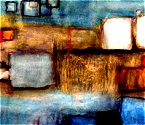
09.23.14 (Elul 28, 5774) Repentance is a return to sanity which begins with the resolution to question your presuppositions and to change your thinking... There are three requisites for genuine repentance, that is, for turning to God in the truth, namely: 1) seeing eyes; 2) hearing ears; and 3) an understanding heart, ready to be healed (Isa. 6:10). God alone does the miracle but it is nevertheless our responsibility to believe that the miracle is for us. Repentance is the first step of salvation, as Messiah said: "Repent and believe in the good news" (Mark 1:15), and apart from repentance man has no real existence. As Yeshua said, "Truly, truly, I say to you, unless one is born again he cannot see the kingdom of God" (John 3:3). Repentance is the expression of trust in God's love, and by means of it we affirm: "I am ready to exist as a person of worth." Come alive, friends!
Teshuvah's Confession...
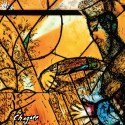
09.23.14 (Elul 28, 5774) When King David repented from his sin and asked God's forgiveness, he appealed to the LORD: "Turn me to the joy of your salvation (יְשׁוּעָה) and uphold me with a willing spirit. Then I will teach transgressors your ways, and sinners will return to you" (Psalm 51:12-13). The sages comment that this is indeed the way of the LORD (דֶּרֶךְ יְהוָה), namely, to confess your sin, and in brokenness and heartfelt contrition, to return to the LORD full of hope in his steadfast love. In this way, sinners will understand the truth of Torah and return to the LORD God as well.... Hashiveinu, Adonai.
In the Torah we read: "if you seek for the LORD your God from there (i.e., in your place of exile), you will find him, if you search for him with all your heart (בְּכָל־לְבָבְךָ) and with all your soul" (Deut. 4:29). From where do we search, from what place, except from a place of hardship, testing, and tribulation? If you seek for the LORD your God from there - in the midst of your exile, in the midst of your heart's cry - you will find him there, in your heart. This message is a prophecy to the heart of faith, so that even after testing befalls you, in the end you will belong to the LORD and will hear his voice.
 |
The Shofar and Teshuvah

09.23.14 (Elul 28, 5774) The shofar (ram's horn) is often used as an instrument of spiritual warfare, though it is primarily used to rouse the soul to face reality... Maimonides writes: "There is a hidden message we are supposed to infer by listening to the shofar. It suggests to say: 'Sleeping ones! Awaken from your sleep! Slumbering ones! Awaken from your slumber! Examine your deeds. Remember your Creator and do teshuvah." This idea was earlier stated in the New Testament writings: "Awake, O sleeper, and arise from the dead, and Messiah will shine on you" (Eph. 5:13-14). This theme of "awakening from sleep" is used elsewhere in the Scriptures (e.g., John 11:11, Rom. 13:11, 1 Thess. 5:6, Dan. 12:1-2, Psalm 78:65, etc.). The sound of the shofar calls us to return to the LORD and seek His face. And since finding God is our greatest joy, King David rightly wrote: "Happy is the people who know the teruah [i.e. the shofar blast]" (Psalm 89:16).
Indeed, the word shofar (שׁוֹפָר) comes from a root (שָׁפַר) that means to "beautify," alluding to the beautification of our ways as we turn to God in teshuvah. "In this month (i.e., the seventh month of Tishrei) you shall amend (shapperu) your deeds. The Holy One, blessed be He, said to Israel: 'If you will amend (shippartem) your deeds I shall become unto you like a horn (shofar). As the horn takes in the breath at one end and sends out at the other, so will I rise from the Throne of Judgment and sit upon the Throne of Mercy and will impart for you the Attribute of Justice (Elohim) into the Attribute of Mercy (YHVH).' (Vayikra Rabbah: 29:6)
Note: For more on this subject see: "The Significance of the Shofar."
 |
Cleaving to Hope...

09.23.14 (Elul 28, 5774) "Love suffers long and is kind..." (1 Cor. 13:4). Have patience with all things, but most of all with yourself. We must "endure ourselves" along the way, often learning hard lessons about our own insufficiency. Have faith that despite all your imperfections, all your defects of character, and your overall weakness of heart, God is indeed at work in your darkness, molding and shaping you to bear witness of His glorious power to save the soul. The LORD holds your hand; his grace and love will help you persevere, giving you the will to press on in hope. Never give up, friends!
דָּבְקָה נַפְשִׁי אַחֲרֶיךָ
בִּי תָּמְכָה יְמִינֶךָ
da·ve·kah · naf·shi · a·cha·re·kha
bi · tam·khah · ye·mi·ne·kha

"My soul clings to you;
Your right hand upholds me."
(Psalm 63:8)
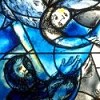
Hebrew Study Card
The concept of "cleaving" or "holding fast" to God is called devakut (דְּבָקוּת) in Jewish tradition, a word that derives from the root davak (דבק), meaning to "cling" or "stick" (the Modern Hebrew word for glue comes from the same root). Davak is used to describe how a man cleaves to his wife so that they become basar echad – "one flesh" (see Gen. 2:24), and is related to the word for bodily joint (debek), the bond of our bones to our skin (Job 19:20). Some have described devakut as "God consciousness imbued with love." "To cleave to Him - that means the cleaving of the mind to Him, for there is no devakut except that of the mind and the meditation of the heart" (Sh'ar ha-ahavah). We are able to cling or cleave to God because He first clung to the cross in love for us (1 John 4:19).
Turning as a Child...
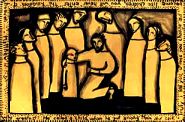
[ The holiday of Rosh Hashanah begins Wednesday (i.e., Sept. 24th) at sundown... ]
09.22.14 (Elul 27, 5774) There is no teshuvah (repentance) apart from humility (Matt. 5:5). The disciples of Yeshua came asking, "Who is the greatest in the kingdom of heaven?" And calling to him a child, he put him in the midst of them and said, "Truly, I say to you, unless you turn (shuv) and become like children (להְיוֹת כַּיְלָדִים), you will never enter the kingdom of heaven" (Matt. 18:2-3). Said the Kotzer Rebbe, "It is proper to weep during the High Holy Days in order to show that despite all our seeming wisdom and learning, we are as helpless as little children who weep for what they desire." "I thank you, Father, Lord of heaven and earth, that you have hidden these things from the wise and understanding and revealed them to little children; yes, Father, for such was your gracious will" (Matt 11:25-26).
The late Henri Nouwen wrote, "I am beginning to see that much of praying is grieving." Contrition, grief, and regret for our sins is at the heart of genuine teshuvah. Crying is a expression of utter humility, helplessness, and need. In this life we weep over many things, but we inwardly cry for our Abba, our heavenly Father's love...
 |
Parashat Ha'Azinu (האזינו)

[ Our Torah portion this week (Haazinu) is always read just before the High Holidays... ]
09.22.14 (Elul 27, 5774) In last week's Torah portion (Vayeleich), Moses finished his farewell address to the people of Israel and commissioned Joshua to be his successor. The LORD then foretold that after Moses' death the Israelites would "whore after foreign gods" and break covenant with Him. In light of this, God instructed him to teach the people a prophetic song called the "Ha'azinu" that foretold Israel's history (past, present, and the future redemption) and warned the people not to stray from the path that the LORD had commanded. Structured in the style of an "oracle," the Ha'azinu contains Moses' final words of prophecy given to the Israelites before he ascended Mount Nebo to die....
We read the Ha'azinu every year near the time of the High Holidays. In the Sefer Torah (Torah Scroll), the song is written in a stylized two-column format with extra spaces. Each line of the shirah (song) is matched by a second, parallel unit (Talmud: Shabbat 103b).
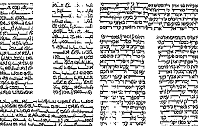 |
The Ha'azinu reminds us that who we listen to ultimately decides our fate. It begins, "Give ear, O heavens (הַאֲזִינוּ הַשָּׁמַיִם), and I will speak, and let the earth hear (וְתִשְׁמַע הָאָרֶץ) the words of my mouth" (Deut. 32:1). The word ha'azinu (הַאֲזִינוּ) comes from verb azan (אָזַנ), as does the Hebrew word for "ear" (i.e., ozen: אזֶן). The Midrash Rabbah says that the ear (אזֶן) gives life to all the organs of the body. How so? By listening (שׁמע, shema) to the Torah. This idea is repeated in the New Testament: "Faith comes from listening to the Word of God" (Rom. 10:17). The Word of God (דְּבַר־אֱלהִים) is our very life, chaverim.
Note: You can download the free Shabbat Table Talk for Ha'azinu here....
Shabbat Shuvah - שַׁבַּת שׁוּבָה

09.22.14 (Elul 27, 5774) The Sabbath between Rosh Hashanah and the solemn fast of Yom Kippur is the very first of the new year, called Shabbat Shuvah (שַׁבַּת שׁוּבָה) - that is, "the Sabbath of Return." It is called "shuvah" because the Haftarah (i.e., Hosea 14:1) begins, Shuvah Yisrael ad Adonai Elohekha (שׁוּבָה יִשְׂרָאֵל עַד יְהוָה אֱלהֶיךָ): "Return, O Israel, unto the LORD your God!" As the first Shabbat of the new year, Shabbat Shuvah is intended to "set the tone" for the rest of the year:
שׁוּבָה יִשְׂרָאֵל עַד יְהוָה אֱלהֶיךָ
כִּי כָשַׁלְתָּ בַּעֲוֹנֶךָ
shu·vah · Yis·ra·el · ad · Adonai · E·lo·hey·kha,
ki · kha·shal·ta · ba·a·vo·ne·kha

"Return, O Israel, to the LORD your God,
for you have stumbled because of your iniquity."
(Hosea 14:1)

Download Study Card
Teshuvah's Deep Regret...

[ The following is related to the month of Elul and the theme of teshuvah (repentance)... ]
09.22.14 (Elul 27, 5774) While it's true that we express sorrow and regret for our sins - we mourn over our lives - this is part of the healing process, with the end result of obtaining comfort from God (Matt. 5:4). Mere regret over sin is not enough, however, since the motive may be from shame (pride) or disappointment over some selfish loss. Esau repented with tears, but his wasn't true repentance since he didn't lament the loss of his heart to God's love... True repentance leads to healing and life. When the woman from Magdala wept and washed Jesus' feet with her tears, he said, "I tell you, her sins, which are many, are forgiven -- for she loved much" (Luke 7:44-48). In other words, she was lavish in her love because she deeply regretted that she had missed what was most important, what she desperately needed all along... She saw her sin as blindness to God's love... After all, why would she weep over her sins unless she loved him? And how could she love him unless he first revealed his love to her? (1 John 4:19)
"For grief (λύπη) as intended by God produces a repentance (תְּשׁוּעָה) that leads to salvation, leaving no regret, but worldly grief produces death" (2 Cor. 7:10).
 |
Teshuvah and Healing...

[ The following is related to the month of Elul and the theme of teshuvah (repentance)... ]
09.22.14 (Elul 27, 5774) Repentance is an ongoing disposition of life in Messiah, since it rightly relates us to God. First we encounter our incurable sickness - the inner contradiction and bondage of soul that both loves and hates sin - and then we seek God's saving power in Yeshua. As the Apostle Paul said: "Who can save me from the misery of myself? – God alone, through Jesus (Rom. 7:18-25). This is the first step, to know the "miserable creature that I am," that is, the slavery of your will to sin, and the second is to be willing to give this sickness of your soul to God's care in Yeshua. As he said, "Those who are well have no need of a doctor, but those who are sick. I have not come to call the 'righteous,' but sinners to repentance" (Luke 5:31-32). Yeshua regarded forgiveness of your sins as essential to finding inner healing, even more important than health, prosperity, or religious observance.
Repentance means returning to love, finding your heart's desire in God... As Yeshua said, "Repent, for you have lost your first love..." (Rev. 2:4-5). Turn around: Look at what is missing within! He appeals to you like a lover standing outside in the cold, calling out your name, and knocking for you to open the door to let him inside (Rev. 3:19-20). Open the door of your heart! Return to him now! "Lord, help me turn to receive your love..."
 |
Why Rosh Hashanah?
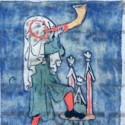
[ The holiday of Rosh Hashanah begins Wednesday (i.e., Sept. 24th) at sundown... ]
09.21.14 (Elul 26, 5774) We celebrate Rosh Hashanah because the LORD God is the great King over all -- our Creator and Redeemer. As the psalmist puts it, God is Melech Gadol al-kol-ha'aretz, (מֶלֶךְ גָּדוֹל עַל־כָּל־הָאָרֶץ), a "great King over all the earth" (Psalm 47:2). Indeed Rosh Hashanah is a "sanctified reminder" of God's creative authority in our lives. Yeshua (Jesus) is called the Mashiach (מָשִׁיחַ), a term that denotes His Kingly dignity and royalty (this idea is unfortunately obscured by the Greek word "Christ"). Yeshua is also borei Olam - the Creator and Sustainer of all creation (Col. 1:16). He is coming to rule and reign from Jerusalem (Zion) in the near future. Christians will be judged according to their deeds of service (2 Cor. 5:10) and the world system (and Satan) will be judged during the Great Tribulation period that precedes the Second Coming. Just as the heavenly shofar was sounded from Sinai, so it will be one day sounded from Zion (Isa. 27:13).
As the only true King and Judge, God indeed has a Sefer HaChayim (Book of Life) as well as a Sefer Ha-Metim (Book of Death). The Scriptures clearly warn that on the Day of Judgment to come, anyone's name not found written in the Book of Life will be thrown into the lake of fire (Rev. 20:15). The Kingship of our LORD should be of great interest to those who regard themselves as citizens of heaven, the dominion of our Savior and Lord (Phil. 3:20).
The New Testament links teshuvah with salvation (יְשׁוּעָה) itself. Yeshua's first message was "Repent and believe the gospel (בְּשׂוֹרָה)" (Mark 1:15), and Paul linked teshuvah with confession and trust in the saving work of the Messiah on our behalf (Rom. 10:8-13). Teshuvah implies a response to the Person of Yeshua that is demonstrated through confession that He is none other than YHVH, the LORD of Compassion and grace. The sound of the shofar is meant to awaken our hearts and to prepare for coming judgment.
Indeed, the Akedat Yitzchak ("Binding of Isaac") is a major theme of Rosh Hashanah. As he went to sacrifice his beloved son upon the altar at Moriah, Abraham prophetically said: "God will provide for himself the lamb" (אֱלהִים יִרְאֶה־לּוֹ הַשֶּׂה). After binding Isaac and raising the knife, however, the Angel of the LORD intervened and Abraham was given a ram as substitute. According to Jewish tradition, God told Abraham that the ram's horn (shofar) should be blown on Rosh Hashanah to remind the people of the substitutionary sacrifice provided by the LORD Himself -- an echo of the very First Sacrifice offered in Eden. In light of this, how much more then should we remember the sacrifice of Yeshua the Great Lamb of God during this time? (For more information, see the article, "The Gospel in the Garden.")
Finally, we anticipate the prophetic fulfillment of the LORD's covenant faithfulness to Israel when we understand that Rosh Hashanah and the Yamim Nora'im ("Days of Awe") foreshadow the future salvation of Israel in the days to come. This pictures the Great Tribulation and Yom Adonai - the great Day of the LORD - that arrives just before national Israel's ultimate shuvah (return). Yom Kippur is the Holiday that pictures the full restoration of Israel to all her covenant promises with Yeshua as the recognized Kohen Gadol (High Priest) of the New Covenant. The new covenant will be embraced and Yeshua will be revealed as Israel's Savior and Redeemer. Then "all Israel shall be saved" (Rom. 11:26).
 |
For more on this subject, see Should Christians Celebrate Rosh Hashanah?
Is Rosh Hashanah Biblical?

[ The holiday of Rosh Hashanah begins Wednesday (i.e., Sept. 24th) at sundown... ]
09.21.14 (Elul 26, 5774) Though the term "Rosh Hashanah" does not occur in the Torah, the start of the 7th month (i.e., Tishri 1) is set apart by special shofar blowing (see Lev. 23:24-25, Num. 29:1-2). Furthermore, the Torah calls the end of the harvest year (in the fall) the "end of the year" (see Exod. 23:6), which indicates the symmetry of the calendar: the fall festivals "mirror" the spring festivals and correspond to one another. Just as there is a "new year" in the spring, on the new moon of Nisan, so there is in the fall, on the new moon of Tishri, the seventh month... That is why we make a "teruah" shout of thanks to God in anticipation of the fulfillment of God's redemptive purposes during the End of Days.
But what about the idea of focusing on repentance during this time of year? Well, undergoing self-examination and teshuvah are clearly commanded by God throughout the Scriptures, including the New Testament writings (see Lam. 3:40; Haggai 1:5; Psalm 119:59; Matt. 7:3-5, Gal. 6:3-4, 1 Cor. 11:28, 2 Cor. 13:5, James 5:16, 1 John 1:8-9, etc.). Setting aside 40 days each year to call us to turn to God is a healing custom, especially if it's done in light of truth of the gospel message. After all, Christians will stand before the Throne of Judgment (kisei ha-din) to give account for their lives to God (see 2 Cor. 5:10). As it is written: "Every man's work shall be made manifest: for the day shall declare it, because it shall be revealed by fire; and the fire shall try every man's work of what sort it is" (1 Cor. 3:13). The foundation of every true work of God comes from trusting in the finished work of Yeshua the Messiah, and the work of our faith will be tested and judged.
For more on this subject, see Is Rosh Hashanah Biblical?
 |
Your Holy Ground...

09.19.14 (Elul 24, 5774) "You are a treasured possession ... a people holy to the LORD your God " (Deut. 26:18-19). Holiness, or kedushah (קְדוּשָׁה), represents transformation, being wholly set apart and turned toward the sacred, the Divine Presence. The LORD said to Moses from the midst of the shining flame: "Take off your sandals from your feet, for the place on which you stand is holy" (Exod. 3:5). The Chofetz Chaim comments: "By faith see that this place, right now, is holy ground, and awaits your response."
קָדוֹשׁ קָדוֹשׁ קָדוֹשׁ יהוה צְבָאוֹת
מְלא כָל־הָאָרֶץ כְּבוֹדוֹ
ka·dosh ka·dosh ka·dosh, Adonai Tze·va·ot,
me·lo khol ha·a·retz ke·vo·do

"Holy, holy, holy is the LORD of hosts;
the whole earth is full of his glory!"
(Isa. 6:3)

Download Study Card
Spiritually speaking, the very first step is to find hope... The Divine Light is seen by means of the eye of faith (עַיִן שֶׁל אֱמוּנָה), as it is written, "Light dawns in the darkness for the upright; He is gracious, merciful, and righteous" (Psalm 112:4). Therefore we find life by trusting in God's Presence, even as we learn to see the invisible (2 Cor. 4:18; 5:7). "Trust in the LORD with all your heart, and do not lean on your own understanding. Know Him in all your ways, and He will straighten your paths. Be not wise in your own eyes; fear the LORD, and turn away from evil" (Prov. 3:5-7).
Shabbat Shalom, friends!
The Work of Faith...
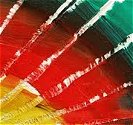
09.19.14 (Elul 24, 5774) You are invited to come before the Divine Presence - you are welcomed with joy - because of the glory of God's love given to you in Yeshua... And while you can never "earn" God's love, of course, you must take hold of it by faith, as Yeshua said: "This is the work of God - that you believe in the One whom God sent (John 6:29). This is the great work of the heart: learning to believe that Yeshua was given for your sake, because you are redeemable and have infinite value in the eyes of heaven. Faith finds courage to accept God's love, despite whatever tempts you to feel unworthy or unacceptable. It pushes past the superficial view that you can please God by what you do, instead of enjoying God by knowing who He is: God is love; God is Light; He is Faithfulness, the Savior of your life... Faith works through his love (Gal. 5:6).
Shabbat Shalom and love to you all, to each one of you... I thank the LORD God for you and esteem you as part of my spiritual family. May you be strong in the LORD and the power of his might; may you be happy and blessed and know God's great peace; may you be filled to overflowing with God's healing love and grace and kindness and beauty and wonder... This (again) is my prayer for the coming Jewish new year. That we will all wake up to behold the love of God in the face of Yeshua our LORD... May he come speedily, and in our days. The King is coming! Shanah Tovah! The great shofar will soon sound!
 |
Torah of "First Importance"...
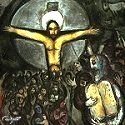
[ "Moses wrote of me" - Yeshua (John 5:46)... ]
09.19.14 (Elul 24, 5774) "And he came to Nazareth, where he had been brought up. And as was his custom (εἰωθὸς), he went to the synagogue on the Sabbath and stood up to read. And the scroll of the prophet Isaiah was given to him. He unrolled the scroll and found the place where it was written, 'The Spirit of the Lord is upon me, because he has anointed me to proclaim good news to the poor. He has sent me to proclaim liberty to the captives and recovering of sight to the blind, to set at liberty those who are oppressed, to proclaim the year of the Lord's favor.' And he rolled up the scroll and gave it back to the attendant and sat down. And the eyes of all in the synagogue were fixed on him" (Luke 4:16-20).
It is noteworthy that the first thing Yeshua taught his disciples after he was raised from the dead was that He is the center and focus of all the Hebrew Scriptures: "And beginning with Moses (i.e., the Torah) and all the Prophets (i.e., Neviim), he interpreted to them in all the Scriptures the things concerning himself" (Luke 24:27). As he said: "Everything written about me in the Torah of Moses and the Prophets (Neviim) and the Psalms (Tehillim) must be fulfilled" (Luke 24:44). And "when he was at table with them, he took the bread and blessed and broke it and gave it to them. And their eyes were opened, and they recognized him. And he vanished from their sight" (Luke 24:30-31).
"God so loved the world that He gave His only begotten Son, that whoever believes in Him should not perish but have eternal life" (John 3:16). This is of "first importance": Yeshua was born to die for our sins, to make us right with God, and was raised from the dead to vindicate the righteousness of God (1 Cor. 15:3-5). "For our sake God made Him to be sin who knew no sin, so that in him we might become the righteousness of God" (2 Cor. 5:21).
Teshuvah and Creation...

[ Tonight at sundown marks Elul 25, the "date of creation..." ]
09.19.14 (Elul 24, 5774) After the LORD judged Adam and Eve, He compassionately gave them the skin of a sacrificial lamb as their covering (Gen. 3:21). This First Sacrifice, offered by the Hand of God Himself, foreshadowed the coming Sacrifice of the Lamb of God who was slain "from the foundation of the world" (1 Pet. 1:20). On the very first day of mankind's creation, then, the LORD initiated His plan of redemption and salvation through Yeshua (Jesus) as the Divine Light of the world (אוֹר הָעוֹלָם).
The Akedat Yitzchak ("Binding of Isaac") is a major theme on Rosh Hashanah. According to Jewish tradition, God told Abraham that the ram's horn (shofar) should be blown on Rosh Hashanah to remind the people of the substitutionary sacrifice provided by the LORD Himself -- an echo of the First Sacrifice offered in Eden. How much more should we as believers in the greater sacrifice of Yeshua as our Lamb of God celebrate this day?
For more on this, see "Teshuvah and Creation: Elul 25 on the Jewish Calendar."
Teshuvah and Love...

09.19.14 (Elul 24, 5774) Repentance means changing how you understand yourself, and therefore it is intimately connected with how you understand God. As A.W. Tozer once said, "What I believe about God is the most important thing about me." Understanding the goodness and glory of God leads to self-respect, a sense of dignity, and so on. This works the other way around, too. If you regard yourself as small, insignificant, and unworthy, you will tend to consider God that way, too. "According to your faith be it done unto you." As you see God, so you will see yourself; as you see yourself, so you will see God. "With the measure you use, it will be measured to you" (Mark 4:24).
Personal repentance implies encountering the revelation of God at "first hand." God does not love you at a distance, nor does he call you to embrace him at "second hand." Repentance, or teshuvah, is the "like for like" measure of God's love; it is your answer to God's question and call....
The message of the gospel requires that you regard yourself as worth dying for, that you are God's friend... "There is no greater love than this: that someone lay down his life for his friends" (John 15:13). God demands that you regard yourself as worth the sacrifice of his beloved son Yeshua in your place; he demands that you understand how dear you are to his heart. God sees something of such great value in you that he was willing to suffer and die to redeem it from loss... Just as the kingdom of God is a "pearl of great price," so you are a pearl of great price to God. What grieves and angers God is the refusal to believe that you are someone of infinite importance to him... Only God can rightfully make such a demand because He knows that loving other things more than Him leads to "disordered love," darkness, and eventual madness. We were made for God's love, but substituting finite things for this infinite need will never suffice to bring lasting healing to our souls...
Those who are "in the flesh" cannot please God (Rom. 8:8). We must turn away from regarding ourselves as mere "flesh" and understand that we are essentially spiritual beings created and redeemed by God (2 Cor. 5:16). We must give up the distinctions in the "world of basar" - the carnal world that is known through sensuous apprehension - and accept ourselves as "new creations" in the Messiah. It is "not the children of the flesh who are the children of God, but the children of the promise are counted as offspring" (Rom. 9:6-8).
The mere conviction of sin is not the same thing as repentance. We have to step beyond a troubled conscience and have our sin crucified by God's love and grace. Grace is therefore essential to genuine repentance, since moral reformation is never enough. "When Christ calls a man, he bids him come and die." We must be humbled so that we can receive. God gives us bitter experience of our inadequacy to call us to return to him. Only God can kill the power of sin within our hearts. Conviction of sin is not the end, but rather newness of life.
True repentance has a distinct and constant reference to the Lord Jesus Christ. If you repent of sin without looking to Christ, away with your repentance! If you are so lamenting your sin as to forget the Savior, you have need to begin all this work over again. Whenever we repent of sin we must have one eye upon sin and another upon the Cross. Or, better still, let us have both eyes upon Christ, seeing our sin punished in Him and by no means let us look at sin except as we look at Jesus.
If I hate sin because of the punishment, I have not repented of sin – I merely regret that God is just. But if I can see sin as an offense against Jesus Christ and loathe myself because I have wounded Him, then I have a true brokenness of heart... Only under the Cross can you repent. Repentance elsewhere is remorse which clings to the sin and only dreads the punishment. Let us then seek, under God, to have a hatred of sin caused by a sight of Christ's love. - C.H. Spurgeon
There is a place for godly sorrow, of course, and for genuine remorse over our sins. As we understand God's desire and love for us, we begin to realize that the essence of sin is the refusal of God's heart for us. The underlying issue with sin concerns the question of God's love. Simply abstaining from certain actions does not address the deepest need of the heart. It is not turning away from sin that matters as much as turning toward God. The death of sin is meant to lead us to the life of love.
God is both infinitely loving and infinitely just, and both of these "attributes" are inseparably a part of who he is. God is One. Nonetheless, the cross of Yeshua proves that "love is stronger than death, passion fiercer than the grave; its flashes are flashes of fire, a raging flame, the very flame of the Lord" (Song. 8:6). It is at the cross that "love and truth have met, righteousness and peace have kissed" (Psalm 85:10). This implies that we must drop our defenses – even those supposed objections and pretenses voiced by our shame – and "accept that we are accepted." It is God's great love for you that leads you to repent and to turn to him. Allow yourself to be embraced by his "everlasting arms."
מֵרָחוֹק יְהוָה נִרְאָה לִי
וְאַהֲבַת עוֹלָם אֲהַבְתִּיךְ
עַל־כֵּן מְשַׁכְתִּיךְ חָסֶד
me·ra·chok Adonai nir·ah li
ve·a·ha·vat o·lam a·hav·tikh
al ken me·shakh·tikh cha·sed

"The LORD appeared to me from far away.
I have loved you with an everlasting love;
therefore with lovingkindness have I drawn you."
(Jer. 31:3)
Genuine repentance will entirely change you. It is an act of profound respect over what God has done on your behalf. You say, but I am a miserable wretch! Indeed that is so, but the consciousness of your wretched state is the heart's cry for love... God goes "outside the camp" to meet with you. He enters the leper colony to join you there, in your wretchedness, and even takes upon your fatal disease. He sees you in your desperate estate and joins you there. God enters into the dust of your death and says, "Live!"
But what about hell? If God so loves the world, how is it possible for someone to be sent to hell? In answer we must remember that God doesn't send people to hell, they choose to go there on their own... One of the greatest of sins is to forget who you really are, since that leads back to the hellish waste places of Egypt... God's redemption leads us to deliverance, freedom, and peace, but "a twisted heart does not discover good" (Prov. 17:20). Indeed, the idea of hell and God's wrath turns on the rejection of love. Hell is the state of soul that denies and refuses the truth of God's love. It is a terrible state of being both unwilling or unable to love and be loved.
Repentance means changing your thinking, turning around to face the truth, and returning to embrace God's love. It does not identify the whole person with sin, but rather regards all people as redeemable, worthy, and valuable to God. Conviction of sin is not the end, but rather the means to newness of life. God saved us so that we could be in a love relationship with Him. We must "choose life," and that means choosing to welcome God's love into your heart. The only sin that can keep you from God's everlasting love is the denial that his love is personally for you. You must forsake seeing yourself "in the flesh" and take hold of God's spirit, his passion, and his grace for your soul. You are worthy to be loved because God is worthy to make you so.
Repent and believe the good news: God is love, and that love is for you.
 |
Testing and Teshuvah...

09.18.14 (Elul 23, 5774) The sages say, shuv yom echad lifnei mitatakh: "Repent one day before you die." But who knows the day of one's death in advance? Perhaps your name will be called today, ending your lease on life in this world. Are you ready? Are you prepared to appear before God your Creator and Redeemer? The apostle Paul urges us to undergo self-examination: "Put yourselves to the test (ἑαυτοὺς πειράζετε) to see if you are in the faith; prove yourselves (ἑαυτοὺς δοκιμάζετε) to see whether Yeshua the Messiah lives within you - lest you fail the test and be disapproved (ἀδόκιμος)" (1 Cor. 13:5).
Whether Yeshua is living in you (and you are living in Him) is the most important question of your life upon which everything else turns. The great mystery is "Christ in you, the hope of glory" (Col. 1:27). As Ravenhill once said, "I don't ask people if they're saved anymore; I look them straight in the eye and say, "Does Christ live inside you?" Are you connected with Him in the truth? Are you drawing life from His life? Do you really live in Yeshua?
Paul said we were to both "test ourselves" with regard to the intellectual content of our faith and also to "prove ourselves" with regard to the veracity of our spiritual life. Notice that the verb "to prove" (dokimadzo: δοκιμάζω) means to test something by fire (like a precious metal) to discover its quality and purity. The analogy here is straightforward. The quality of our faith will be revealed during times of testing and hard circumstance. Do we walk in love, joy, and peace - despite the testing of this life? If our faith regularly fails in the crucible of testing, we may need to reexamine its authenticity (Prov. 24:10).
Note: For more on this challenging topic see, "Proving of the Heart."
 |
Spelling out "Teshuvah"

09.18.14 (Elul 23, 5774) Rabbi Sussya once said: "There are five verses in the bible that constitute the essence of the Torah. These verses begin in Hebrew with one of these letters: Tav (תּ), Shin (שׁ), Vav (ו), Bet (בּ), and Hey (ה), which form the word for repentance, "teshuvah" (תְּשׁובָה). The five verses are 1) Tamim tiheyeh (תָּמִים תִּהְיֶה): "Be wholehearted before God" (Deut. 18:13); 2) Shiviti Adonai (שִׁוִּיתִי יְהוָה): "I have set the LORD always before me" (Psalm 16:8); 3) Va'ahavta lere'akha (וְאָהַבְתָּ לְרֵעֲךָ): "Love your neighbor as yourself" (Lev. 19:18); 4) Bekhol derakekha (בְּכָל־דְּרָכֶיךָ): "In all your ways know Him" (Prov. 3:6); and 5) Higid lekha (הִגִּיד לְךָ): "Walk humbly with your God" (Micah 6:8). In other words, the way of teshuvah, of answering God's call for you to return to Him, is to sincerely set the LORD before you, to love others, and to walk out your days in heartfelt gratitude.
הִגִּיד לְךָ אָדָם מַה־טּוֹב
וּמָה־יְהוָה דּוֹרֵשׁ מִמְּךָ
כִּי אִם־עֲשׂוֹת מִשְׁפָּט וְאַהֲבַת חֶסֶד
וְהַצְנֵעַ לֶכֶת עִם־אֱלהֶיךָ
hig·gid · le·kha · a·dam · mah · tov
u'mah · Adonai · do·resh · mi·me·kha
ki · im · a·sot · mish·pat · ve·a·ha·vat · che·sed
ve·hatz·ne·a · le·chet · im · e·lo·hey·kha

"He has told you, O man, what is good, and what the LORD requires of you:
Only to do justice, and to love kindness, and to walk modestly with your God"
(Micah 6:8)

Hebrew Study Card
In other words, "teshuvah" (repentance) is an acronym that stands for being whole, seeing God, loving others, knowing God in all your journey, and walking in humility...
Words of Heart...
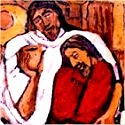
[ The following is related to the month of Elul and the theme of teshuvah (repentance)... ]
09.18.14 (Elul 23, 5774) "If we ask anything according to God's will, he hears us," which is to say that in heaven there is only the language of truth, and truth is the language of heaven. Those who pray insincerely abuse the gift of speech, and such language is not understood in heaven... God speaks to us "in son," which is forever the language of faithfulness, hope, and love (1 Cor. 13:13). Kierkegaard wrote, "No person is saved except by grace; but there is one sin that makes grace impossible, and that is dishonesty; and there is one thing God must forever and unconditionally require, and that is honesty." Confession means "saying the same thing" about ourselves that God says - and that means not only acknowledging our sins, but also affirming that we are loved by God. "Love hopes all things" (1 Cor. 13:7), and therefore the language of truth is always spoken in hope. No truth about your sin is known apart from the love of God revealed in Yeshua our Messiah.
 |
Miracles and Trust...

09.18.14 (Elul 23, 5774) It's been said that the LORD our God delivered Israel with ten great wonders rather than just one to demonstrate his power over all the realms, and yet the ongoing miracles through the desert – the manna, the miraculous well, the clouds of glory – actually may have prevented the people from learning to fully trust in Him. "You have seen all that the LORD did before your eyes in the land of Egypt ... the signs and those great wonders. But to this day the LORD has not given you a heart to understand or eyes to see or ears to hear" (Deut. 29:2-4). But did not the Exodus generation know, see, and hear the power of God? Did they not witness the great Passover redemption, walk across the sea, and later behold God's glory at Sinai? Did they not drink water from the rock and eat bread that fell from the sky? Yes, they experienced God's power, but only as a child might... Moses explained that after they entered the promised land, these miracles would cease, and that meant they needed to remember who they were, and to trust in God's love, presence and power without proof. At first the people did not understand that God is the LORD over all the earth, and He provided signs, wonders, and miracles; but when they matured, they were to know, see and hear the LORD in all things (1 Cor. 13:11).
 |
Personal Rosh Hashanah...
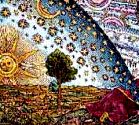
[ The following is related to the month of Elul and the theme of teshuvah (repentance)... ]
09.17.14 (Elul 22, 5774) Spiritual danger is just as real as physical danger, though most people pretend it isn't because it isn't easily seen. The real dangers of life are not vulnerability to crime or some accident, however, but rather susceptibility to despair, the tendency to put off repentance, and the possibility of not dying well.... It is a great danger to walk through life asleep only to be jolted awake upon the day of death. "The greatest danger is that one does not discover, that one is not always discovering, that one is in danger" (Kierkegaard). Danger of what? Of wasting your life with trifles and vanities; of never learning how to truly love or to be loved; of becoming numb, unfeeling, and therefore unmoved by your need for God. As C.S. Lewis once wrote, "The safest road to hell is the gradual one - the gentle slope, soft underfoot, without sudden turnings, without milestones, without signposts." Hashivenu Adonai elecha vena-shuvah: "Turn us to You, O LORD, and we shall be turned..." (Lam. 5:21).
Moses prayed to God: "teach us to number our days," that is, help us understand how to make our days count for eternity, to have a weight of glory that will shine in the world to come... The sages say on the day of death, one considers one's life as if it had been a single day... Life goes by so quickly, and we never know when our personal Rosh Hashanah will come. "No one knows the day or hour..." That's why it is so vital to be healed and to turn to God while there is still time. So turn to him today and bacharta ba'chayim – "choose life!" "For this commandment (of turning to God in teshuvah) is not hidden from you, and it is not far away. It is not in heaven... nor across the sea.... Rather, the matter is very near you - in your mouth and your heart - to do it" (Deut. 30:11-14; cp. Rom. 10:8-13).
לִמְנוֹת יָמֵינוּ כֵּן הוֹדַע
וְנָבִא לְבַב חָכְמָה
lim·not · ya·me·nu · ken · ho·da
ve·na·vi · le·vav · chokh·mah

"Teach us to number our days
that we may get a heart of wisdom."
(Psalm 90:12)

Hebrew Study Card
Despite the frailty and brevity of our days, may it please God to shine the power of His radiance upon us and to establish our works for His praise. May He help us to "number our days" so that we may obtain levav chokhmah (לְבַב חָכְמָה) - a heart of wisdom to live according to His will (James 1:5). Above all else, may the "God of our Lord Yeshua the Messiah, the Father of Glory (אֲבִי הַכָּבוֹד), impart to you a spirit of wisdom and of revelation in the knowledge of Him, having the "eyes of your hearts" (ὀφθαλμοὺς τῆς καρδίας) enlightened, that you may know what is the hope to which he has called you" (Eph. 1:17-18). May you be strong, resolute, and fully focused on our LORD, chaverim. Amen.
Season of Renewal...
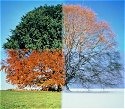
09.16.14 (Elul 21, 5774) Though it's a difficult and sometimes painful process, the primary goal of teshuvah is healing from the oppression of our sins and the restoration of our relationships. Someone once said that great sins are like great possessions -- both are difficult to give up. We have to be willing to "give up our sins" in order to find inner healing (and "giving up our sins" also may mean breaking free of the "pride-shame" cycle). Often we can only get to this point when we are afflicted and weary of our soul's sickness. Looked at this way, our afflictions are a really gift from the LORD to help us turn and surrender to Him. As the psalmist wrote: טוֹב־לִי כִי־עֻנֵּיתִי לְמַעַן אֶלְמַד חֻקֶּיךָ / "It was good for me that I was afflicted, that I might learn your statutes" (Psalm 119:71).
It's important to remember that one of the main goals of the enemy of your soul is to induce a sense of forgetfulness and apathy. The devil wants you to forget that you are ben melech (or bat melech) - a son (or daughter) of the King. The entire venture of teshuvah presupposes that you are created b'tzelem Elohim - in the image of God - and therefore you have infinite value and dignity. This is all the more evident in light of the awesome ransom that Yeshua our Lord paid in order to reconcile your soul with God. What is the greatest sin you can commit in your life? To forget (or disregard) what God has done for you... Remaining asleep, unmindful of your true identity is one of the most tragic things of life.... Therefore Rosh Hashanah is sometimes called Yom Ha-Zikaron - the "Day of Remembrance" (Lev. 23:24). The blast of the shofar is meant to jolt us from our sleep... We are to remember who we really are -- and to remember that God is our King. The person who says, "Tomorrow I will do teshuvah" really is saying, "Not now." And then tomorrow comes and he says, "Not now." And in this way his entire life passes by, saying, "Not now." Finally one day he wakes up only to find himself already dead....
According to some of the sages past events are not fixed in stone; rather they -- like our relationship to them -- can change. We do not have to live with childhood trauma or bitterness from the past. Teshuvah means "putting away childish things" and growing up (1 Cor. 13:11). Only our personal future is unknown and therefore seemingly "static." The forgiveness given through Yeshua redeems all of our sins -- including those that might haunt us from our past. Our present response to the LORD has the potential to transform everything in our lives -- both our past, present, and future... His love transforms every aspect of our lives, from cradle to grave. God is always present whenever we let Him in.
The sages point out that the gematria for the word Elul (אלוּל) equals binah (בּינה), suggesting that teshuvah is a matter of the heart's understanding of itself. Of course this is not to suggest that we should do teshuvah only during the 40 days before Yom Kippur. On the contrary, teshuvah is a lifelong and ongoing process -- a daily struggle to retain our focus and faith. Repentance is often "slow motion," involving lots of smaller decisions we make throughout the days of the year... This is the normal course of genuine transformation (or "sanctification"). The process of seeking the LORD is an ongoing process of discovery about God's love and forgiveness. For this reason the confession of sin should be a regular part of our fellowship with one another (James 5:16).
The essence of Torah is to love your neighbor as yourself. Teshuvah means, among other things, understanding how far we are removed from this ideal and how we might move to remedy the breach. This is a daily task, an ongoing duty... But we cannot give away what we don't have, so if we're deficient in self-love, we will be unable to genuinely love others, too. Part of loving others is the obligation to forgive yourself for your sins. For some people, this might mean "accepting that they are accepted" by God... Real change is difficult -- some would even say impossible -- though with God all things are possible -- including the miracle of a heart of stone turning to flesh.
Note: For more on this topic see, "Teshuvah and Renewal."
 |
Teshuvah of the Heart...

[ The following concerns the "Season of Repentance" leading up to the High Holidays... ]
09.16.14 (Elul 21, 5774) The month of Elul (אֱלוּל) is sometimes called "the month of love and compassion" (based on the acronym formed from אֲנִי לְדוֹדִי וְדוֹדִי לִי / "I am my beloved's, and my beloved is mine," Song 6:3). This poignant verse alludes to the mystery that God is our Heavenly Groom and we are His betrothed. God is the great Lover of our souls, and the greatest mitzvah of all is to keep faith in His covenant promise of love (Rom. 8:24). Our Beloved is Coming! Yeshua will soon be here, chaverim. Don't miss the Bridegroom's call! Return to the passion of your first love (Rev. 2:4).
 |
 |
Yeshua illustrated the idea of teshuvah (i.e., תְּשׁוּבָה, "returning to God") by telling the story of the "prodigal son" (Luke 15:11-32). After squandering his father's inheritance, a wayward son decided to return home, full of shame and self-reproach. "But while he was still a long way off, his father saw him and was filled with compassion for him; he ran to his son, threw his arms around him and kissed him." The father then ordered a celebratory meal in honor of his lost son's homecoming. When his older brother objected, the father said, "We had to celebrate and be glad, because this brother of yours was dead and is alive again; he was lost and is found."

This parable reveals that teshuvah ultimately means returning (shuv) to the compassionate arms of your Heavenly Father... God sees you while you are still "a long way off" (Rom. 5:8). He runs to you with affection when you first begin to turn your heart toward Him. Indeed, God's compassion is so great that He willingly embraces the shame of your sins and then adorns you with "a fine robe, a ring, and sandals." Your Heavenly Father even slaughters the "fattened calf" (Yeshua) so that a meal that celebrates your life may be served....
Why did Yeshua come? He was like the father in the parable who was actively looking for his lost son... He came to "seek and save the lost" (Luke 19:10). Yeshua likened Himself to a shepherd who left his flock to search for one lost sheep, and after finding it, laid the sheep on his shoulders rejoicing (Luke 15:3-7). He also likened Himself to a woman who lost a coin but diligently searched for it. After she found it, she called together her friends and neighbors, saying, 'Rejoice with me, for I have found the lost coin!' (Luke 15:8-10).
Note: For more on this see: "Teshuvah of the Heart: Returning to your first love."
 |
Return of the Captives...

[ The following is related to this week's Torah reading, parashat Nitzavim... ]
09.16.14 (Elul 21, 5774) "The LORD your God will return as you return, and will have mercy upon you, turning to gather you back..." (Deut 30:3). This has both a present and prophetic application. First, in the present hour, if you turn to God, he will show you compassion, and he will "gather back" all those distant and fragmented parts of yourself into shalom and wholeness. He will restore your lost days; he will bring you out of exile and give you comfort in Yeshua. He makes all things new. "Draw near, therefore to God, and he will draw near to you" (James 4:8). Second, the LORD will return to earth as the Jewish people return from their captivity, and he will restore Zion during the time of the final redemption. The LORD will turn captivity into mercy; he will turn in his compassion to his people. As it is written: "I will be found by you, declares the LORD... and I will bring you back..." (Jer. 29:14).
 |
The language of the Torah here is emphatic: "even if your exile is at the farthest edge of heaven (בִּקְצֵה הַשָּׁמָיִם), from there the LORD your God will gather you..." (Deut. 30:4). Note that this prophecy is written in the singular and therefore pertains to each individual exile. God will "gather you," that is, he bring you back to make you whole. Even if your exile (singular) is to the uttermost, the LORD will take you and deliver you, as it is written, "He is able to save to the uttermost (σῴζειν εἰς τὸ παντελὲς) those who draw near to God through him, since he always lives to make intercession for them" (Heb. 7:25).
Note that it appears that the prophesied war between Israel and Syria may be drawing near, the outcome of which will be catastrophic for Damascus and injurious to the northern cities of Israel (Isa. 17:1-3). "Behold, Damascus will cease to be a city and will become a heap of ruins." This war from the north will cause a worldwide escalation of political tension that may invite the advent of the Messiah of Evil to arise as a worldwide "peacemaker."
 |
Turn from the Beginning...

09.16.14 (Elul 21, 5774) The sages say that teshuvah (return) was created before the world itself, as it says, "Before the mountains were born, or you brought the world into being, you were the Eternal God who says "Return (שׁוּבוּ), O sons of man" (Psalm 90:2-3). The Lamb of God was slain from the foundation of the world, and God clothed humanity in divine sacrifice from the very beginning (Gen. 3:15,21; Rev. 13:8). The river of life flows from the original orchard of Eden to the world to come (Gen. 2:10; Rev. 22:1). The LORD subjected creation to vanity for the sake of hope (Rom. 8:20), for the revelation of his greatness, as he descended into its depths to return and restore all things to himself. God decreed to enter space-time as the Son of Man, the "Second Adam," to become our Savior and healer. He came to reveal the face of God to us (2 Cor. 4:6). Yeshua "descended in order to ascend;" we are able to know God's compassion, love and healing through his mesirat nefesh – his total sacrifice of body and soul – for the sake of returning us to God.
 |
We're Running Out of Time...

09.15.14 (Elul 20, 5774) The prophetic spirit always asks: "How long will you go limping between two different opinions?" (1 Kings 18:21). This urgent question is meant for us to hear today, since the day and hour is assuredly drawing near.... We are being called to make up our minds and turn (shuv) to the LORD. After all, what is more important to you than your relationship with God? Is there anything more important than this?
Abraham Heschel once wrote, "God is of no importance unless he is of supreme importance." Stated differently, it is impossible to be indifferent toward God. You cannot serve two masters (Matt. 6:24). Ultimately you will either hate or love him, but he will never let you be half-hearted toward him (Rev. 3:16). Yeshua always forced the issue. Consider how often people were offended by his message. The gospel is always offensive to those who make much of themselves. Accepting the cross of Yeshua means abandoning the whole religious game. As Bonhoeffer said, "When Christ calls a man, he bids him to come and die."
The Scriptures warn that a "double-minded man is unstable in all his ways" (James 1:8). The word translated "double-minded" is dipsuchos (δίψυχος), which literally means having "two souls." A double-minded man is full of inner conflict and indecision; he's like the proverbial "divided house" that cannot stand. The way to be healed of a divided heart is to earnestly make a decision: "Draw near to God and He will draw near to you (ἐγγίσατε τῷ θεῷ καὶ ἐγγιεῖ ὑμῖν), cleanse your hands, you sinners, and purify your hearts, you double-minded" (James 4:8). Note that the verb used in this verse (i.e., ἐγγίζω, "draw near") means to come close enough to touch. Understood in this light, we are invited to come so close to God that we are able to "touch" Him -- and to be touched by Him as well. Therefore today is the day for you to "seek the LORD while He may be found; call upon Him while He is near" (Isa. 55:6).
דִּרְשׁוּ יְהוָה בְּהִמָּצְאו
קְרָאֻהוּ בִּהְיוֹתוֹ קָרוֹב
dir·shu · Adonai · be·hi·matz·o
ke·ra·u·hu · bi·yo·to · ka·rov

"Seek the LORD while he may be found;
call upon him while he is near."
(Isa. 55:6)

Hebrew Study Card
God responds to those who sincerely cry out to him (Psalm 145:18). He is "near to the brokenhearted and saves the crushed in spirit" (Psalm 34:18). Indeed, salvation is as close as your own mouth and heart (Rom. 10:8-13). But how many are the days of your life? How many opportunities for you to make up your mind? "How long will you go limping between two opinions?" Therefore choose this day whom you will serve. Make the first step; open your heart, and the LORD will then help you make the wholehearted decision to "seek the LORD while He may be found; call upon Him while He is near." Amen.
Anniversary of Creation...

[ Note that Elul 25 begins this coming Shabbat - Friday, Sept. 19th at sundown... ]
09.15.14 (Elul 20, 5774) Popular Judaism regards Rosh Hashanah as the date of the Creation of the universe by God (Talmud: Rosh Hashanah 27a), but the Midrash (rightly) notes that it occurred six days earlier, on the 25th of Elul, when God created the Divine light yesh me'ayin by saying, "Let there be light" (Gen. 1:3-5). This is called ma'asei bereshit (מַעֲשֵׂה-בְּרִאשִׁית), the very first work of creation, which is the revelation of His Word: "And God said..." Indeed, the first "red letters" of the Scriptures pertain the Divine Light of God:
וַיּאמֶר אֱלהִים יְהִי אוֹר וַיְהִי־אוֹר
vai·yo·mer · E·lo·him · ye·hi · ohr · vai·hi · ohr

And God said, "Let there be light," and there was light.
(Gen. 1:3)

Note: For more on this subject, see "Teshuvah and Creation."
The Selichot Service...
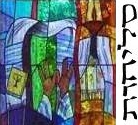
[ Since this coming Shabbat is the last of the Jewish year, many congregations will hold a special late-night service to offer prayers for forgiveness in anticipation of the High Holidays... ]
09.15.14 (Elul 20, 5774) The Hebrew word selichah (סְלִיחָה) means "excuse me!" in modern Hebrew, but in the Scriptures it refers exclusively to God's offer of pardon and forgiveness of the repentant sinner. Therefore we read in the Scriptures, "But with you there is forgiveness (selichah), that you may be feared" (Psalm 130:4):
כִּי־עִמְּךָ הַסְּלִיחָה לְמַעַן תִּוָּרֵא
ki im·me·kha ha-se·li·chah le·ma'an tiv·va·rei

"But with you there is the forgiveness,
that you may be held in awe."
(Psalm 130:4)

The plural form of the word selichah is selichot (סְלִיחוֹת), a term used in Jewish tradition to refer to additional penitential poems (פּיּוּטִים) and prayers recited throughout the "Forty Days Teshuvah" (many of these prayers may be found in a High Holiday Machzor or prayerbook). On the Saturday night before Rosh Hashanah, many congregations hold a late-night "Selichot Service" (called leil selichot, literally, "night of penitential prayers") to offer prayers for forgiveness in anticipation of the High Holidays. During this service, the chazzan (cantor) often dresses in a kittel (white burial shroud) and chants in a style similar to the liturgy for Rosh Hashanah and Yom Kippur.
Parashat Nitzavim-Vayeilech...

[ This week we have a "double portion" of Torah: parashat Nitzavim ("You are standing") and parashat Vayeilech ("and he went"). ]
09.14.14 (Elul 19, 5774) Parashat Nitzavim is always read on the Shabbat immediately before Rosh Hashanah, and therefore it is the last portion read for the current Jewish year (in many synagogues, the opening and concluding paragraphs of Nitzavim are also read during the Yom Kippur morning service, however).
This great portion begins: "You are standing here today, all of you, before the LORD your God (אַתֶּם נִצָּבִים הַיּוֹם כֻּלְּכֶם לִפְנֵי יְהוָה אֱלהֵיכֶם) ... so that you may enter into the sworn covenant of the LORD your God, which the LORD your God is making with you today, that he may establish you today as his people, and that he may be your God, as he promised you, and as he swore to your fathers, to Abraham, to Isaac, and to Jacob" (Deut. 29:10-13). After this Moses went on to review Israel's history and prophetic future -- i.e., the great prophecy of the worldwide Exile and Return of the Jewish people -- and then he solemnly appealed for us to turn to the LORD for life:
הַעִידתִי בָכֶם הַיּוֹם אֶת־הַשָּׁמַיִם וְאֶת־הָאָרֶץ
הַחַיִּים וְהַמָּוֶת נָתַתִּי לְפָנֶיךָ הַבְּרָכָה וְהַקְּלָלָה
וּבָחַרְתָּ בַּחַיִּים לְמַעַן תִּחְיֶה אַתָּה וְזַרְעֶךָ
ha·i·do·ti va·khem hai·yom et ha·sha·ma·yim ve·et ha·a·retz
ha·chai·yim ve·ha·ma·vet na·ta·ti le·fa·ney·kha ha·be·ra·khah ve·ha·ke·la·lah
u·va·char·ta ba·chai·yim, le·ma·an tich·yeh at·tah ve·zar·e·kha

"I call heaven and earth to witness against you today,
that I have set before you life and death, blessing and curse.
Therefore choose life, that you and your offspring may live.
(Deut. 30:19)

The way of return (teshuvah) is always a matter of the heart and will: bacharta ba'chayim: "Choose Life!" "For this commandment (of teshuvah) is not hidden from you, and it is not far away. It is not in heaven...nor across the sea.... Rather, the matter is very near you - in your mouth and your heart - to do it" (Deut. 30:11-14; cp. Rom. 10:8-13). In the end of days (acharit hayamin), the LORD will remove the "partial hardening" of the Jewish people so that they will turn to Him with all their heart and soul (Deut. 30:6, Rom. 11:25-26).
But why this seemingly topsy-turvy process of teshuvah? Why do the Jewish people have to go through this long period of suffering, tribulation, and scattering, only to be finally regathered one day in the future? Moses himself gives us the answer (as does the Apostle Paul in the Book of Romans): "The secret things (ha-nistarot) belong to the LORD our God (הַנִּסְתָּרת לַיהוָה אֱלהֵינוּ), but the things that are revealed (ha-niglot) belong to us and to our children forever, that we may do all the words of this law" (Deut. 29:29). Part of the "secret things" concerns the mystery the suffering of the Jewish people, since it is clear that God particularly afflicts those whom he loves through testing, and indeed part of the meaning of being am segulah (a "select people") implies dealing with God - by means of blessing or by curse (Heb. 10:31). In the end, however, God's plan for Israel will decisively demonstrate His wisdom, power, and glory, so much so that that Paul commented on ethnic Israel's future by exclaiming, "Oh, the depth of the riches and wisdom and knowledge of God! How unsearchable are his judgments and how inscrutable his ways" (Rom. 11:33).
Perhaps you (like me) once learned Psalm 19:7 as, "The law of the LORD is perfect, converting the soul." The Hebrew text reads, תּוֹרַת יְהוָה תְּמִימָה מְשִׁיבַת נָפֶשׁ, and might better be translated as, "The instruction of the LORD is perfect, returning the soul." Giving heed to the Torah causes our souls to undergo teshuvah, the very theme of Rosh Hashanah and the High Holidays....
Now more than ever, chaverim. We must not put our trust in man or in this moribund world system (κοσμος). We are undoubtedly living close to the "end of days." God's judgment has begun in earnest. It is time for us to choose whether we will be shaken or if we will walk in the trust of the LORD God of Israel. Choose this day.
Seek God and Live...

[ The following concerns the "Season of Repentance" leading up to the High Holidays... ]
09.12.14 (Elul 17, 5774) The sages affirm, "This world is like a corridor before the World to Come; prepare yourself in the corridor, that you may enter into the hall" (Avot 4:21), which implies that the great commandment is always "seek Me and live" (Amos 5:4). "Seek the LORD while he may be found; call upon him while he is near" (Isa. 55:6). "Where can God be found?" asks the Kotzker rebbe, "but where one lets Him in..." God sometimes "hides" from us so that we are given the opportunity to seek Him with all our hearts.
כִּי כה אָמַר יְהוָה לְבֵית יִשְׂרָאֵל
דִּרְשׁוּנִי וִחְיוּ
ki · kho · a·mar · Adonai · le·veit · Yis·ra·el:
dir·shu·ni · vi·che·yu

For thus says the LORD to the house of Israel:
"Seek me and live!"
(Amos 5:4)

Download Study Card
God's Spirit is always calling for us to return to Him, to "seek God and live..." What is holding your heart back? In Hebrew teshuvah (תְּשׁוּבָה) means an "answer" to a to a shelah (שְׁאֵלָה), or a question. It is a response to the call of God... The One who ransomed us from death and offers us life in abundance is standing at the door knocking, waiting for us to respond to call (Rev. 3:20). During this season of teshuvah, may we all hear the Voice of Him who invites the brokenhearted to join him: "Come to me, all who labor and are heavy laden, and I will give you rest" (Matt. 11:28).
A Covenant People...
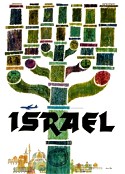
09.12.14 (Elul 17, 5774) Our Torah this week (Ki Tavo) includes the following admonition: "Be silent and hear (shema), O Israel: this day you have become the people of the LORD your God" (Deut. 27:9). Here the sages note that "Israel" means more than a physical land with certain geographical boundaries, since Moses had said "this day" (הַיּוֹם הַזֶּה) before the people had crossed the Jordan to enter the promised land itself. No, the existence and perpetuity of Israel is based on God's covenantal promises, not the vicissitudes of geopolitics and history. The Torah is the "portable homeland" of the people of God in all places... As it says further in our Torah reading: "These are the words of the covenant that the LORD commanded Moses to seal (לִכְרת) with the people of Israel" (Deut. 29:1).
"In Him you also, when you heard the word of truth, the gospel of your salvation, and believed in Him, were sealed with the promised Holy Spirit, who is the guarantee of our inheritance until we acquire possession of it, to the praise of his glory" (Eph. 1:13-14).
 |
Empathy and Affliction...

09.12.14 (Elul 17, 5774) It is written in our Scriptures: "Blessed is the one who considers the poor (מַשְׂכִּיל אֶל־דָּל), the LORD will deliver him in the day of evil" (Psalm 41:1). The Hebrew word translated "poor" is dal (דָּל), referring to the weak, the lowly, and the "down and out." Such a poor one is in need of encouragement, and offering a kind word or "visiting" them in their affliction is an act of tzedakah (righteousness). And when you give alms (i.e., charity), do so "secretly," empathetically, and without drawing attention to yourself. If you know someone too embarrassed to ask for help, say, "Do me this great kindness and accept this gift, since by means of it I will find blessing, as our Torah teaches." Indeed, "Whoever is generous to the poor lends to the LORD, and the LORD will repay him for his deed" (Prov. 19:17). In the merit of helping the needy one, the LORD will bring comfort to you in your hour of need, as it is written: "The LORD will guard him (i.e., the one who regards the poor) and will enliven him, and he will be made blessed in the earth; the LORD will not give him over to the will of his enemies" (Psalm 41:2).
אַשְׁרֵי מַשְׂכִּיל אֶל־דָּל
בְּיוֹם רָעָה יְמַלְּטֵהוּ יְהוָה
ash·rei · mas·kil · el-dal
be·yom · ra'ah · ye'ma·le·te·hu · Adonai

"Blessed is the one who considers the poor
the LORD will deliver him in the day of evil."
(Psalm 41:1)
Religion vs. Spirituality...

[ The following entry is related to the month of Elul that precedes the High Holidays... ]
09.12.14 (Elul 17, 5774) It has been wisely said that "religion is for people afraid of going to hell; spirituality is for those who have been there...." Religion seeks defense of the ego and delights in the idea of personal reward; spirituality seeks death of the ego and delights in the idea of shared love... Studying the Scriptures for the sake of "religion" is ultimately self-defeating, since the answer is not religion but spiritual rebirth: "Truly, truly, I say to you, unless one is born again he cannot see the kingdom of God" (John 3:3).
Most people "sleepwalk" through life, overlooking the wonder of the present moment, refusing to seek God, medicating the gnawing sense of inner emptiness. It is a great danger to walk through life asleep only to be jolted awake upon the day of death... Above all, then, "repentance" means waking up to return to reality...
"It is enough to open your heart the smallest amount - even the width of a pin head - to repent, so that you feel a prick within your heart, like a piercing sting in living tissue, not like a needle thrust into dead flesh" (Menachem Mendel of Kotzk).
 |
Curse of Indifference...

09.12.14 (Elul 17, 5774) From our Torah reading this week (Ki Tavo) it is written: "Cursed is anyone who does not uphold the words of this Torah to do them" (Deut. 27:26). The sages here note that the word "uphold" (יָקִים) means accepting the truth and validity of Torah (hashkafah), not necessarily perfectly fulfilling all of the commandments. It is the one who denies the legitimacy of God's word, or claims that the commandments are no longer relevant, that is under the curse. The righteous may struggle and sometimes stumble, but they are never at peace with their sin and always seek to repent. Those who are careless – who willfully disregard God's truth – sin in defiance, and this leads to a life of eternal loss. We do not add or subtract from Torah, since that is to refashion God's word into our own image. And even if we should stumble and fail 100 times a day, we affirm the validity of God's truth and cherish it within our hearts. We must never justify compromise, mediocrity, and apathy into a spiritual ideology (Rev. 3:16).
One of the most serious of sins is to forget who you really are – a prince or princess of God. Forgetting who you are leads to forgetting who the Lord is, just as forgetting who the Lord is leads to forgetting who you are.... Therefore the Lord constantly tells us to remember and not to forget the call of his heart, the message of his love.
Heeding this message is difficult in our fallen world, since God does not want our relationship with him to be trivial. Our hearts must be tested in "desert places" until they cry out, "You are my Lord; I have no good apart from you" (Psalm 16:2; Deut. 8:16). As Abraham Heschel said, "God is of no importance unless he is of supreme importance." There is no compromise on this point: We are to love the Lord with all our heart, with all our soul, and with all our strength...
 |
Worldly Afflictions...
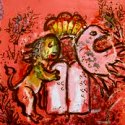
09.11.14 (Elul 16, 5774) Our Torah portion this week (Ki Tavo) recalls how "the Egyptians mistreated and afflicted us..." (Deut. 26:6). The sages note that the word translated "they afflicted" (וַיָּרֵעוּ) could be translated either as "they made us bad (רַע)" or "they befriended us" (רֵעַ), though the two meanings may be related, since befriending the ideals and values of the world corrupts us so that we lose our identity and our spiritual sensitivity. As it is written, "whoever wishes to be a friend of the world makes himself an enemy of God" (James 4:4). Therefore we are admonished not to love this world and its rubbish: "If anyone loves the world, the love of the Father is not in him" (1 John 2:15).
Relentless Blessings...
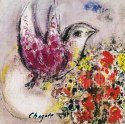
[ The following entry concerns this week's Torah reading, parashat Ki Tavo. Please read the Torah portion to "find your place" here. ]
09.11.14 (Elul 16, 5774) "And all these blessings shall come upon you and overtake you, if you hear (shema) the Voice of the LORD your God" (Deut. 28:2). The language here is unusual, as if these blessings would seize you like an army takes an enemy stronghold. The sages comment that God's blessings can "overtake" you in a way that may hide their true purpose for your good (Rom. 8:28). At such times we do not understand they are a concealed mercy (רַחֲמִים נִסְתָר) designed for our benefit. Therefore king David affirmed his confidence despite being surrounded by trouble. Where it is written, "Surely goodness and mercy shall follow me all the days of my life" (Psalm 23:6), the verb translated "shall follow me" (i.e., יִרְדְּפוּנִי) comes from a root word that means "to pursue," as a hunter chases after his prey. David was sure that God's lovingkindness would "hound" him as he made his way through this world - even in the dark places, even in "the valley of the shadow of death" (בְּגֵיא צַלְמָוֶת) - where God's rod and staff would there comfort him and shepherd his way (Psalm 23:4). "May your love, O LORD, be upon us, as we hope in You."
יְהִי־חַסְדְּךָ יְהוָה עָלֵינוּ
כַּאֲשֶׁר יִחַלְנוּ לָךְ
ye·hi · chas·de·kha · Adonai · a·lei·nu
ka·a·sher · yi·chal·nu · lakh

"May your love, O LORD, be upon us,
as we hope in You"
(Psalm 33:22)

Hebrew Study Card
Whatever the heart genuinely seeks, it will find. We are constantly "asking, seeking, and knocking" (Matt. 7:7), even if we are often unaware of our heart's search. The one who pursues righteousness will find it, just as evil will come to the one who searches after it (Prov. 11:27). As it is written, "Those who worship worthless idols forsake the love (i.e., chesed: חֶסֶד) that could be theirs" (Jonah 2:8). David understood that as he pursued God, God's love would pursue him; as we seek, so we are sought by God; as we draw near to God, so He will draw near to us (James 4:8).
The prophet Hosea likewise cried out: "Let us know; let us press on to know (i.e., נִרְדְּפָה, "pursue after") the LORD; His going out is sure as the dawn; He will come to us as the showers, as the spring rains that water the earth" (Hos. 6:3). May God help us pursue him be'khol levavkha - with all our heart - because He has promised, "You will seek me and find me, when you seek me with all your heart" (Jer. 29:13). And may the love of the LORD indeed be upon us, even as we put our hope in Him. Amen.
 |
The Curse of the Law...

[ The following entry concerns this week's Torah reading, parashat Ki Tavo... ]
09.11.14 (Elul 16, 5774) We are told that we must "receive" the life of Yeshua into our hearts, and that is certainly true, but we must also receive his death as well... This is the meaning of "taking up your cross." It is the death of Yeshua in your place that releases you from the curse of the law (מִקִּלְלַת הַתּוֹרָה), that is, spiritual death, as it says, "the Messiah redeemed us from the curse of the law by becoming a curse for us, for it is written, "Cursed is everyone who is hanged on a tree" (Gal. 3:13). By faith we "lay hands" on him and "lean into" his death, confessing our guilt and sin and receiving his sacrifice as offered up for our sake. Our sins are "transferred" to his account, and his righteousness is transferred to ours. This is the idea of our "justification," -- "just-if-i'd" never sinned, and "just-if-i'd" always obeyed... As it is written, "God made the One who did not know sin to be sin for us, so that we would become the righteousness of God (δικαιοσύνη θεοῦ) in Him" (2 Cor. 5:21). It is the righteousness of God, not our own. We receive the "death benefits" of Yeshua, who has bequeathed to us the great inheritance of everlasting life and heaven itself... Our identification with His death makes us "free from the law," not in the sense that we are free to sin, but rather free to live in a different order of relating to God, a new and a better covenant, whereby we are given power over sin and death. "I have been crucified with the Messiah: It is no longer I who live, but Messiah who lives in me. And the life I now live in the flesh I live by faith in the Son of God, who loved me and gave himself for me. I do not nullify the grace of God, for if righteousness came through the terms of the law, then Messiah died for no purpose" (Gal. 2:20-21). Trusting in Yeshua gives us "access by faith into grace" so that we are fully and forever accepted in God's Presence...
Note, however, that we are delivered from the curse of the law, but not from the law itself (see Matt. 5:17-19). After all, the Torah, understood to refer to the will of the LORD our God, is written on our hearts by the power and agency of the Holy Spirit, the Spirit of Truth, in accordance with the promise of the New Covenant of God (Jer. 31:33). For more on this important topic, see the Ki Tavo article, "Death with Messiah."
 |
Focus of the Heart...
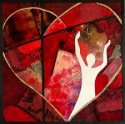
[ The following is related to the month of Elul and the theme of teshuvah (repentance)... ]
09.10.14 (Elul 15, 5774) Yeshua taught, "Blessed are the pure in heart, for they shall see God'" (Matt. 5:8). The Greek word translated "pure" is katharos (καθαρός), sometimes used describe the cleansing of a wound (catharsis), or to describe the unalloyed quality of a substance revealed through refining fire (the corresponding Hebrew word for the "pure of heart" (בַּר־לֵבָב), used in Psalm 24:4, comes from a root (בָּרַר) that likewise means to purify by fire). Metaphorically, then, purity of heart refers to separation from the profane - singleness of vision, wholeheartedness, passion, and focused desire for the sacred. As the Beatitudes reveal (Matt. 5:3-8), only those who are impoverished in spirit, who mourn over themselves and hunger for God's mercy, are refined by their struggle to see God (the Greek text implies these will see God now – with inward vision – and in the world to come). Because the pure in heart use ayin tovah, the good eye, they walk "in the light, as He is in the light" (Matt. 6:22). When we are undivided in heart, the Spirit imparts to us a hidden wisdom (1 Cor. 2:6-7) and we are able to discern hidden realities that others do not see (1 Cor. 2:14). As we center our affections on Yeshua, we become unified, made whole, and healed of our inner fragmentation. We see the Lord both in this world, through his effects, and then panim el panim (פָּנִים אֶל־פָּנִים), "face to face," in the world to come. Our hope purifies us for that coming great day of full disclosure (1 John 3:2-3; Heb. 12:14).
If we are impure of heart, we will be inwardly divided, unfocused, fragmented, filled with destabilizing anxiety, envy, anger, and so on. More tragically, because we seek to escape ourselves, we will be devoid of a true center, without a focal point or abiding purpose, and therefore we will be lost to ourselves, wandering and without rest....
The heart is a miracle, an "engine" that distributes life, and the heartbeat is a great mystery, inexplicably pulsing with energy, contracting the muscles. The pulse of the heart, then, is the "center of the center" of a person's physical life...
As below, so above. It is the Spirit that gives life (John 6:63). The Holy Spirit imparts the "pulse" of the Divine Life, and we gain newness of life when we trust God for purification from our sins through Yeshua our LORD. As King David further attested: Lev tahor bara li Elohim – "Create in me a clean heart, O God" and renew a right spirit within me (Psalm 51:10). Only the new heart (lev chadash) created by power of God's Spirit can possibly yield the life of the Spirit within us. The creation of a new heart represents the transformation of your whole inner nature - with the impartation of new appetites, new passions, new desires, and the rebirth of your will. If you struggle with being inwardly divided, fervently ask the LORD to give you the blessing of purity of heart...
Note: People tend to think of "purity of heart" in moral terms, such as not looking with lust on others, not coveting, etc., though these are symptoms of disordered love... Genuine purity is a matter of focus, of finding the "good portion" and the "one thing necessary" (Luke 10:42). Such purity heals you of ambivalence, settling the heart's inner decision. Purity of heart realizes that all that you've ever longed for is found in God alone. It is a great, great gift from heaven to know God as your heart's true desire - to fully understand that your relationship with Him is the ultimate concern and treasure of your existence.
 |
The Joy of Surrender...

[ The following entry concerns this week's Torah reading, parashat Ki Tavo... ]
09.09.14 (Elul 14, 5774) Our Torah portion this week explains the reason for the judgment and exile of God: "Because you did not serve the LORD your God with joyfulness ... therefore you shall serve your enemies" (Deut. 28:47). Some of the sages do not read this as, "because you failed to be joyful..." but rather "because you failed to serve God - and that became your joy." In other words, finding joy and happiness outside of God is the reason for God's corrective judgment. Being happy that you are "free" of Torah, or regarding it as a burden, is a sign of spiritual trouble. As the Messiah Yeshua said: "Do not think that I have come to abolish the Torah or the Prophets; I have not come to abolish them but to fulfill them. For truly I say to you, until heaven and earth pass away, not an Yod, nor a stroke of a Yod (קוֹצוֹ שֶׁל יוֹד), will pass from the Torah until all is accomplished. Therefore whoever relaxes (λύσῃ) one of the least of these commandments and teaches others to do the same will be called least in the kingdom of heaven, but whoever does them and teaches them will be called great in the kingdom of heaven" (Matt. 5:17-19).
There is indeed Torah for the follower of Yeshua - namely, his commandments and teaching found in the New Testament (which of course is rooted in the Torah of Moses). As we learn to see the beauty of God's true Torah, we will spontaneously and joyfully seek to do those things that please our LORD and Master. As the Apostle John wrote: "For this is the love of God, that we keep his commandments. And his commandments are not burdensome (lit. "heavy," βαρύς) (1 John 5:3).
 |
The Gravity of Grace...

09.08.14 (Elul 13, 5774) Our Torah portion this week (Ki Tavo) includes Moses' seemingly endless description of terrible consequences that would befall the Jewish people if they disobeyed the terms of the Sinai covenant (Deut. 28:15-68). In Jewish tradition this litany of woe is called the "tochachah" (תּוֹכָחָה), a word that means "rebuke" or "reprimand." Reading the tochachah is difficult and painful, though it serves as a bitter medicine to wake us up and prevent us from falling into a lethal coma. In that sense the tochechah is a great blessing since it shocks us into experiencing the gravity of God's grace. This is similar to Yeshua's grave warnings about the dangers of hell. If we refuse to listen or rush past his words, we are missing the substance of God's lament given through the Hebrew prophets. Sin is a lethal problem, and we must turn to God for healing or we will die. As Blaise Pascal once wrote, "Between heaven and hell is only this life, which is the most fragile thing in the world." Therefore shuvah! -- turn to God and receive the blessing of life!
We must turn to God every day; we must choose to set the LORD before us always (Psalm 16:8). This is implied by our Torah portion as well: After hearing each curse, the people were required to ratify the words by saying, 'Amen' (Deut. 27:15). We must say "amen" to both the blessing and to the curse, which means that we accept the infinite significance of our choices... For example, those who reject the first commandment, namely, to accept the LORD as their God, are subject to the spiritual implications, and yet to this we must also say "Amen" (Deut. 27:15). The great choice we face every day is whether or not we will surrender ourselves to the blessing of God... As Moses said, "I call heaven and earth to witness against you: today I set before you life and death, blessing and curse; therefore bacharta ba'chayim: choose life, that you and your offspring may live" (Deut. 30:19).
Note: For more on this very important topic, see "The Curses of the Law."
A Select Treasure...
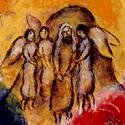
[ The following entry concerns this week's Torah reading, parashat Ki Tavo... ]
09.08.14 (Elul 13, 5774) "You are a treasured possession ... a people holy to the LORD your God " (Deut. 26:18-19). Holiness, or kedushah (קְדוּשָׁה), represents transformation, being wholly set apart and turned toward the sacred, the Divine Presence. The LORD said to Moses from the midst of the shining flame: "Take off your sandals from your feet, for the place on which you stand is holy" (Exod. 3:5). The Chofetz Chaim comments: "By faith see that this place, right now, is holy ground, and awaits your response."
קָדוֹשׁ קָדוֹשׁ קָדוֹשׁ יהוה צְבָאוֹת
מְלא כָל־הָאָרֶץ כְּבוֹדוֹ
ka·dosh ka·dosh ka·dosh, Adonai Tze·va·ot,
me·lo khol ha·a·retz ke·vo·do

"Holy, holy, holy is the LORD of hosts;
the whole earth is full of his glory!"
(Isa. 6:3)

Download Study Card
Spiritually speaking, the very first step is to find hope... The Divine Light is seen by means of the eye of faith (עַיִן שֶׁל אֱמוּנָה), as it is written, "Light dawns in the darkness for the upright; He is gracious, merciful, and righteous" (Psalm 112:4). Therefore we find life by trusting in God's Presence, even as we learn to see the invisible (2 Cor. 4:18; 5:7). "Trust in the LORD with all your heart, and do not lean on your own understanding. Know Him in all your ways, and He will straighten your paths. Be not wise in your own eyes; fear the LORD, and turn away from evil" (Prov. 3:5-7).
Note: I am currently out of town though I am updating the site as I can from the road... Thank you for your patience, friends!
Parashat Ki Tavo - כי־תבוא

[ The following entry concerns this week's Torah reading, parashat Ki Tavo. Please read the Torah portion to "find your place" here. ]
09.07.14 (Elul 12, 5774) Last week's Torah portion (Ki Teitzei) listed no less than 74 of the Torah's 613 commandments, covering a wide assortment of social and ethical rules that were to be observed in the Promised Land. In this week's Torah portion (Ki Tavo), Moses concludes the legal section of his discourse by first ordaining that the "first fruits" of the crops (called "bikkurim") be brought to the priests in a annual tithing ritual. After explaining additional laws of tithing for all of the people, Moses instructed that a "second Sinai experience" should be enacted immediately after the people crossed the Jordan river. The portion concludes with Moses delivering the great tochachah ("Rebuke") which foretold a terrible litany of woes that would result from the people's disobedience.
Shabbat Kumi Ori - קוּמִי אוֹרִי

[ The following entry concerns this week's Torah reading, parashat Ki Tavo... ]
09.07.14 (Elul 12, 5774) The haftarah for parashat Ki Tavo (i.e., Isa. 60:1-22) is the sixth of the seven readings from the prophets that are consecutively read before Rosh Hashanah. These "haftarot of comfort" foretell of the restoration of the Jewish people and of the coming of the Messianic Era. In this week's reading, The Haftarah reading for this coming Shabbat describes the future salvation of the nation of Israel. The LORD promises to shine His glorious light upon the Jewish people and to reveal His glory, despite the hour of darkness and tribulation that comes upon the earth:
"Arise and shine (קוּמִי אוֹרִי) for your light has come, and the glory of the LORD (כְּבוֹד יהוה) has risen upon you. For behold, darkness shall cover the earth, and thick darkness the peoples; but the LORD will shine upon you (וְעָלַיִךְ יִזְרַח יהוה), and his glory will be seen upon you (וּכְבוֹדוֹ עָלַיִךְ יֵרָאֶה). And nations shall come to your light, and kings to the brightness of your rising. Lift up your eyes all around, and see; they all gather together, they come to you; your sons shall come from afar, and your daughters shall be carried on the hip" (Isa. 60:1-4).
Sometime during the "plague of darkness" that represents the time of the Great Tribulation (i.e., the Day of the LORD and the judgment of the world, or Yom Adonai), Israel will finally turn to the LORD and receive Yeshua as their long-lost Messiah (Zech. 12:10). The veil will finally be taken away, and all Israel will be saved. The Light of Salvation (Yeshua) will be revealed and the glory of the LORD (כְּבוֹד יהוה) will radiantly shine (זָרָח) upon the Jewish people. The land of Israel will be like Goshen during the times of the plagues of Egypt as the world powers are all judged and destroyed. Then the survivors of the nations will understand that the LORD is indeed with Israel and will turn to Him in surrender as well. "And the glory of the LORD shall be revealed, and all flesh shall see it together, for the mouth of the LORD has spoken" (Isa. 40:5). Yeshua will return to Zion to establish the Kingdom of God upon the earth (Zech. 2:10-13).
קוּמִי אוֹרִי כִּי בָא אוֹרֵךְ
וּכְבוֹד יְהוָה עָלַיִךְ זָרָח
ku·mi o·ri ki va or·rekh
ukh·vod Adonai a·la·yikh za·rach

"Arise, shine, for your light has come,
and the glory of the LORD has risen upon you."
(Isa. 60:1)

Hebrew Study Card
The LORD said to Moses from the midst of the shining flame: 'Take off your sandals from your feet, for the place on which you stand is holy' (Exod. 3:5). The Chofetz Chaim comments: We all need to rise higher... Never say, I will be able to lift myself up at another time or different place. By faith see that this place, right now, is holy ground, and awaits your response. May God open the "eyes of your heart" to help you see (Eph. 1:18-19).
Refusing Offense...
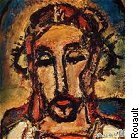
09.05.14 (Elul 10, 5774) People today are quick to take offense, made prisoners of their own insecurities... Ironically, the more you seek your own honor, the less you'll find. Turn yourself around; get out of yourself: "Whoever exalts himself will be humbled, and whoever humbles himself will be exalted." "If anyone would be first, he must be servant of all" (Mark 9:35). "And blessed is the man who is not offended" (וְאַשְׁרֵי הָאִישׁ אֲשֶׁר לא־יִכָּשֵׁל).
The devil seeks to "divide and conquer" people by emphasizing what makes them different. He seeks to sow seeds of mistrust, suspicion, and hatred based on fear and ignorance. We must fight the power of the lie by means of the truth of the LORD God Almighty. All people are created be'tzelem Elohim (בְּצֶלֶם אֱלהִים), intended to be image-bearers of the Divine, and each soul will give account for its life – for every careless thought, word, and deed. As it is written, "No creature is hidden from his sight, but all are naked and exposed to the eyes of him to whom we must give account" (Heb. 4:13). Refuse, therefore, to take offense over anything - over perceived insults, over attacks on your character, and especially over the news (i.e., propaganda) of this evil world, friends. All things come from the hand of God to test you; to refine what is in your heart... Give up your personal "rights" and surrender yourself to the providential care of your Heavenly Father. But regarding the affairs of this world, understand that the nations are tohu (תהוּ), "confusion and unreality" (Isa. 40:17), and the schemes of worldly men are ultimately doomed (Psalm 1:6). Ein od milvado: Understand that the LORD God Almighty is the great King over all the earth (Psalm 47:7).
Shabbat Shalom, dear friends... Thank you for your love and support!
Taking Captivity Captive...
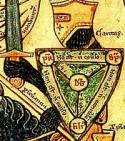
[ The following entry concerns this week's Torah reading, parashat Ki Teitzei.... ]
09.05.14 (Elul 10, 5774) Our Torah portion this week (i.e., Ki Teitzei) begins, "When you go out to war against your enemies..." (Deut. 22:10), which the sages interpret to refer to spiritual warfare that must be waged against the evil inclination (yetzer ha'ra) and satan. We are promised victory over evil if we go out to confront the battle (כִּי־תֵצֵא לַמִּלְחָמָה), not by ignoring it or hoping that it will somehow just go away... When we go out to battle, God will help us "capture its captivity" (וְשָׁבִיתָ שִׁבְיוֹ), that is, we will capture the strategies and strongholds of wickedness itself. We will see through the lies, the cunning, and the schemes of the enemy and bring them before the LORD (2 Cor. 10:4-5). We must not shrink back in fear; we must fight the good fight of faith, taking up the whole armor of God, and bearing the victory of Yeshua our LORD in our hearts.
Teshuvah of Mercy...
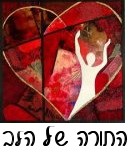
[ The following is related to the month of Elul and the theme of teshuvah (repentance)... ]
09.05.14 (Elul 10, 5774) It's been said that grace is getting what you don't deserve, whereas mercy is not getting what you do... Yeshua said, "Blessed are the merciful, for they shall receive mercy" (Matt. 5:7). This is not a reciprocal law like karma, i.e., you get in return what you first give, since we cannot obtain God's mercy as reward for our own supposed merit (Rom. 4:4). No, we are able to extend mercy to others when we are made merciful ("full of mercy"), that is, when we first receive mercy from God. After all, you can't give away what you don't have, and if we have no mercy for others, it is likely that we have not received it ourselves, as the parable of the Good Samaritan reveals (Luke 10:25-8). Your forgiveness is your forgiveness: as you forgive, so you reveal your heart. What you do comes from what you are, not the other way around. We are first transformed by God's grace and then come works of love. We are able to judge others mercifully, with the "good eye," because we come to believe that we are beloved by God.
The pattern therefore abides: First you realize you are broken, impoverished of heart, and you therefore mourn over your sinful condition. Then you hunger and thirst for God's righteousness, for his healing and deliverance, and you learn to trust the mercy of God, that is, you come to accept that you are accepted despite your unacceptability. You begin to show yourself mercy; you learn to "suffer yourself" and forgive your own evil, and then you extend this mercy to others who are hurting around you... The failure to extend mercy, to demand your "rights" or hold on to grudges, implies that you are relating to God as Judge rather than as Savior (James 2:13). If we condemn what we see in others, we have yet to truly see what is within our own hearts; we have yet to see our desperate need for God's mercy for our lives. If you don't own your own sin, your sin will own you. Being merciful is a response to God's love and therefore is essential to genuine teshuvah... Ask the LORD to help you let go of the pain of the past by being full of mercy toward yourself and others.
Note: I am post-dating this entry because I am traveling with my family at this time...
Restoring what is Lost...

[ The following entry concerns this week's Torah reading, parashat Ki Teitzei.... ]
09.04.14 (Elul 9 5774) "Do not ignore the loss of your brother... you shall restore it to him" (Deut. 22:1-3). The Torah states that it is a moral duty to return lost items to others, and on a spiritual level that includes restoring honor and dignity to those who have lost sight of their value in the eyes of God... For even greater reason we must make restitution to those whom we have harmed. Making amends is part of the teshuvah process. We hurt ourselves when we hurt others, and we hurt others when we hurt ourselves. The way out of that circle is through making amends. As Yeshua taught: "If you are offering your gift at the altar and there remember that your brother has something against you, leave your gift there before the altar and go. First be reconciled to your brother, and then come and offer your gift" (Matt. 5:22-23). "Therefore, confess your sins to one another and pray for one another, that you may be healed. The prayer of a righteous person has great power as it is working" (James 5:16). Ultimately, confession of the truth is not optional for anyone.
Indeed, regarding the duty to restore what is lost to our brother mentioned above, the Torah adds, "and you are not to ignore it," which literally reads, "you are unable to hide it" (לא תוּכַל לְהִתְעַלֵּם). Rabbi Abraham Twerski notes that the Torah is not giving us a command as much as stating a fact: You are unable to hide from a wrongful act. In other words, the problem with "getting away with it" is that you get away with it, that is, you take it with you. Such self-deception sears your conscience, makes you numb inside, and deadens the heart. Making amends to others is life-giving, helping you let go of what you've done wrong to restore inner peace. We must be vigilant not to let our hearts die because of either shame or rationalization. May the LORD help us walk in the Spirit of Truth.
Teshuvah and Seeking...

[ The following is related to the month of Elul and the theme of teshuvah (repentance)... ]
09.04.14 (Elul 9 5774) The Hebrew word for "world" or "age" is olam (עוֹלָם), which is derived from a root verb (עָלַם) that means "to conceal" or "to hide." God "hides" His face from us so that we will seek Him, and that means pressing through ambiguity of this world to discern and take hold of the truth. Therefore King David said, בַּקְּשׁוּ פָנָיו תָּמִיד/ bakeshu fanav tamid: "Seek His face continually" (Psalm 105:4). Note that the Hebrew gematria (numerical value) for the word "fanav" (i.e., "His face") is the same as that for the word "olam." When we truly seek God's face (i.e., His Presence), that is, "do teshuvah," we are able to discern the underlying purpose for our lives in this age...
דִּרְשׁוּ יְהוָה וְעֻזּוֹ
בַּקְּשׁוּ פָנָיו תָּמִיד
dir·shu · Adonai · ve·u·zo
ba·ke·shu · fa·nav · ta·mid

"Seek the LORD and his strength;
seek his presence continually."
(Psalm 105:4)
ζητήσατε τὸν κύριον καὶ κραταιώθητε
ζητήσατε τὸ πρόσωπον αὐτοῦ διὰ παντός

Hebrew Study Card
The ancient Greek version of the Torah (i.e., the Septuagint) translates this verse, "Seek the LORD and be strengthed; seek His face through everything (διὰ παντός)." The LORD God gives us "inner strength" (i.e., ἐγκράτεια, from εν-, "in" + κράτος, "strength" or "power") when we yield to "the power of His might" (ἐν τῷ κράτει τῆς ἰσχύος αὐτοῦ) (Gal. 5:22-23; Eph. 6:10). Therefore we must remember God's power and glory, for "He is the LORD our God (הוּא יְהוָה אֱלהֵינוּ); His judgments are in all the earth" (Psalm 105:7).
Teshuvah of Concern...

[ The following is related to the month of Elul and the theme of teshuvah (repentance)... ]
09.04.14 (Elul 9 5774) Blaise Pascal wrote that faith in Yeshua is essentially a confession of irreparable human infirmity, and therefore its message is always directly there - to the place of our pain and desperation. Consequently it has no voice or message to mere triflers - to those who might patronize it as philosophically interesting, morally edifying, poetically beautiful, politically useful, and so on. No, no, never: the Spirit speaks to the heart in its anguish, in its lament over the suffering and agony of life in this world, and there breathes out the haunting question, "Do you want to be healed?"
עָקב הַלֵּב מִכּל וְאָנֻשׁ הוּא
מִי יֵדָעֶנּוּ
a·kov · ha·lev · mik·kol · ve·a·nush · hu
mi · ye·da·en·nu

"The heart is deceitful above all things, and incurably sick;
who can understand it?"
(Jer. 17:9)

Though our faith can be expressed in "theological" terms, it remains first of all a message to the individual in existential distress, shouting the way of escape to those on the edge of the everlasting abyss... The language of genuine teshuvah is one of ultimate concern, a message that appeals to matters of life and death itself.
"A life of a human being begins with the illusion that a long, long time and a whole world lie before him in the distance, begins with the foolhardy delusion that he has such ample time for his many claims. The poet is the eloquent and enthusiastic confidant of this foolhardy but beautiful delusion. But when a person in the infinite transformation discovers the eternal itself so close to life that there is not the distance of one single claim, of one single evasion, of one single excuse, of one single moment of time from what he in this instant, in this second, in this holy moment shall do - then he is on the way..." (Kierkegaard: Works of Love)
Teshuvah and Truth...

[ The following is related to the month of Elul and the theme of teshuvah (repentance)... ]
09.03.14 (Elul 8 5774) In the New Testament, the Greek word metanoia (and its related verb, metanao) is the most commonly used word to express the idea of "repentance." The compound word is formed from 'μετα' (after, with) and 'νοεω' (to think) and generally means "changing your mind" (in the noun form) or "thinking differently" (in the verb form). Since it can also represent an "afterthought" expressed emotionally as disappointment over a loss of some kind, metanoia is similar to the idea of nacham (נָחַם) in the Hebrew Scriptures, which literally means to "sigh" as a way of expressing regret or consolation. The Greek word strepho (στρέφω), like the Hebrew word shuv (שׁוּב), means to "return" to God in a practical sense, that is, by performing acts of contrition. In either case, however, a change of direction is implied, and that change ultimately begins with how we think and what we regard as truth. Repentance, then, involves a new vision, a new way of seeing reality...
Yeshua's earthly ministry began with the message, "The time has come and the kingdom of God draws near: repent (μετανοεῖτε) and believe (πιστεύετε) the good news" (Mark 1:15). These two verbs (repent, believe) are in the imperative mood. We are commanded to repent, to "change our thinking," and to turn away from hopelessness - and the sin that hopelessness begets - by accepting God's intervention and deliverance. But you cannot believe if you do not first turn, and therefore you must change your focus: clear away the world's distractions and ready your heart to hear the message. It is in the desert places that we "prepare the way of the Lord and make straight a highway for our God."
קוֹל קוֹרֵא בַּמִּדְבָּר פַּנּוּ דֶּרֶךְ יְהוָה
יַשְּׁרוּ בָּעֲרָבָה מְסִלָּה לֵאלהֵינוּ
kol · ko·rei · ba·mid·bar · pa·nu · de·rekh · Adonai
ya·she·ru · ba·a·ra·vah · me·sil·lah · le·lo·hei·nu

A voice cries out: 'In the desert prepare the way of the LORD;
make straight in the steppes a highway for our God.'
(Isa. 40:3)

Note that the word translated "prepare" (i.e., panu) comes from a root word (פָּנָה) that means to turn to face someone... The Hebrew word panim (פָּנִים), "face," comes from the same root, as does the word penimi (פְּנִימִי), "inner," and the word penimiyut (פְּנִימִיוּת), meaning "inwardness" or "immanency." This suggests that we must go within our own hearts, and there, in our "desert places," we will encounter the Presence of the LORD. It is in the solitude of the desert - away from the noise and distractions of this vain world, where we can focus our heart, confess our sin, and express our great need for God... Being honest with ourselves makes us yashar (יָשַׁר), and crooked ways are made straight for God to be received... The Hebrew word mesilah (מְסִלָּה) alludes to the ladder (i.e., sullam: סֻלָּם) that Jacob saw in the desert when he received the blessing of God (Gen. 28:12). Yeshua is the Bridge, or Ladder (הַסֻּלָּם), that unites and mediates heaven and earth (John 1:51).
Since God holds us responsible to repent and believe the truth of the gospel (Acts 17:30-31), He must have made it possible for us to do so ("ought" implies "can"). And indeed, God has created us in His image so that we are able to discern spiritual truth. He created us with a logical sense (rationality) as well as a moral sense (conscience) so that we can apprehend order and find meaning in the universe He created. All our knowledge presupposes this. Whenever we experience anything through our senses, for example, we use logic to categorize and generalize from the particular to the general, and whenever we make deductions in our thinking (comparing terms, making inferences, and so on), we rely on logic. We have an innate intellectual and moral "compass" that points us to God.
Since we all necessarily must think in order to live, we should value clear thinking. This should be obvious enough, though people often make various errors and misjudgments because they devalue the effort required to carefully think through a question. As William James once said, "A great many people think they are thinking when they are merely rearranging their prejudices." When it comes to questions about the gospel, however, God regards such carelessness to be blameworthy. Again, the LORD holds us accountable for what we think and believe, especially when it comes to the reality and mission of His Son.
The truth about God is always available to human beings, if they are willing to look for it. The Divine Light that was created before the sun and the stars represents God's immanent presence that "lights up" all of creation - including our minds (Gen. 1:3). As Paul stated, "the invisible things of Him from the creation of the world are clearly seen so that people are without excuse" (Rom. 1:19-20). The heavens are constantly attesting to the reality of God's handiwork (Psalm 19:1). All of creation "shouts out" that there is a God. Even small children understand this.
Note: People perish because "they refuse to love the truth and so be saved" (2 Thess. 2:10-12). Therefore the issue of truth - physical, moral, aesthetic, spiritual, etc. - is central to salvation itself. For more on this subject, see "Teshuvah of the Mind."
Life from the Dead...

09.02.14 (Elul 7 5774) Repentance means that we believe that the kindness of God can give life to our dead hearts. Repentance is therefore first of all a matter of faith, of believing in the miracle of God. And though it is a great gift from heaven, repentance requires honesty and acknowledgment of the truth. We must confess our inner poverty, our neediness, and mourn over the loss and hurt caused by our sin. Repentance turns away from our attempts to defend or justify ourselves and instead turns to God to heal our separation from Him (Rom. 8:3-4). Teshuvah buries our old nature by being made into a new creation.
It is no small thing to believe the message of Yeshua, and indeed, it involves a passionate inwardness that scandalizes the rational mind. Our father Abraham is extolled as the model of righteous faith, but he was tested to sacrifice the moral law (e.g., "thou shalt not murder") when he lifted up the knife to slay his beloved son Isaac. Faith requires you to change your everyday thinking, to go beyond natural expectations, to "walk on water." In the case of Yeshua, we are confronted with the "Absolute Paradox," namely, the God-Man, the Infinite-made-Finite, the Holy-made-Profane, the Sinless-made-Sin, who says to you: "I AM the resurrection and the life. Whoever believes in me, though he die, yet shall he live, and everyone who lives and believes in me shall never die. Do you believe this?" (John 11:25-26). You will never die; you will never hunger; you are made whole through my brokenness; you will be cleansed by my defilement, and so on. It's not just hard to believe, it's impossible, which is why it is a miracle of God to be saved (Matt. 19:26). "It is the Spirit that gives life; the flesh is no help at all" (John 6:33). The difference is Yeshua: Salvation is of the LORD. We are enabled to love and know God by means of his inner life and spirit, not by means of good intentions or religious zeal. Faith itself is a miracle, the power of God....
Some people imagine spirituality as a climb upward, an "ascent of the soul" that aims to reach God through the performance of good deeds or religious rituals. But God does not say "at the end of the way you will find me," but rather, "I AM the way, the very road under your feet, the Place (הַמָּקוֹם) where you are, the Bridge to the Father (John 14:6). "For all things come from You (כִּי־מִמְּךָ הַכּל), and from your hand we give to you" (1 Chron. 29:14). The LORD is Present in every "here" and every "now," the Source of all we are. And no matter what our circumstances, we will find God if we search "bekhol levavkha" - with all our being, as it is written: "You will seek me and find me, when you seek me with all your heart."
The principle of the self-life, the ego, religious observance, "doing the law," etc., is a spiritual dead-end because we are without life, without power. The word is this: God gives strength to the weary, to the faint, to those who are without potency or power. But this means that we first must be emptied, broken, and stripped of our self-sufficiency before the strength of God is manifest in us: "My power is made perfect (τελειοῦται) in weakness" (2 Cor. 12:9). None of this flatters the ego. God's way is first to break us, to make us weaker and weaker, so that he can then fill us with the miraculous divine nature. Like all sacrifices that were brought to the altar, we must pass through death to life by means of our union with the Messiah at the cross... It is only after the cross that it may be said, "It is no longer 'I' who lives; now it is Messiah who lives His life in me" (Gal. 2:20). There is indeed strength, power, and victory – but such comes after the cross, after we reckon carnal energy as useless. Not by might, nor by power, but by My Spirit, says Adonai Tzeva'ot.
God's Radiant Light...

[ The following is related to the month of Elul and the theme of teshuvah (repentance)... ]
09.02.14 (Elul 7 5774) In the Gospel of John it is recorded that Yeshua said, "I am the way, the truth, and the life" (i.e., ᾽Εγώ εἰμι ἡ ὁδὸς καὶ ἡ ἀλήθεια καὶ ἡ ζωή), no one can come to the Father apart from my hand" (John 14:6). The Greek word translated "truth" in this verse is aletheia (ἀλήθεια), a compound word formed from an alpha prefix (α-) meaning "not," and lethei (λήθη), meaning "forgetfulness." Truth is therefore a kind of "remembering" something forgotten, or a recollecting of what is essentially real. Etymologically, the word aletheia suggests that truth is also "unforgettable" (i.e., not lethei), that is, it has its own inherent and irresistible "witness" to reality. People may pretend or even lie to themselves, but ultimately the truth has the final word... "The light shines in the darkness, and the darkness has not overcome it" (John 1:5).
כִּי־עִמְּךָ מְקוֹר חַיִּים
בְּאוֹרְךָ נִרְאֶה־אוֹר
ki · im·me·kha · me·kor · chai·yim
be·or·kha · nir·eh · ohr

"For with you is the fountain of life;
in your light do we see light."
(Psalm 36:9)

Hebrew Study Card
"In Your light we see light..." When you enter a dark room with a lamp, the darkness flees and is overcome by the light. So also with teshuvah: When we turn to the Lord spiritual darkness is overcome by the Divine Radiance. In Yeshua is life, the light of the world; those who receive Him behold ohr ha'chayim (אוֹר הַחַיִּים) - the "light of life."
During this Season of Teshuvah -- and always -- may the LORD God of Israel help us walk in the unforgettable and irrepressible radiance of His glory. May God help us shine with good works that glorify God's Name (Matt. 5:16). "For God, who said, 'Let light shine out of darkness' (יְהִי אוֹר וַיְהִי־אוֹר), has shone in our hearts to give the light of the knowledge of the Glory of God in the face of Yeshua the Messiah" (2 Cor. 4:6).
Fighting Spiritual Blindness...
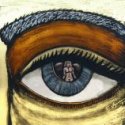
[ The following entry concerns this week's Torah reading, parashat Ki Teitzei.... ]
09.01.14 (Elul 6 5774) Our Torah portion this week (Ki Teitzei) commands us to remember what the Amalekites did to the Jewish people just after they left Egypt during the time of the Exodus (Exod. 17:8-16; Deut. 25:17-19). Paradoxically God commanded the Israelites to "blot out the remembrance" of Amalek while swearing to fight Amalek "from generation to generation" (Deut. 17:16). In this connection note that the name "Amalek" (עֲמָלֵק) begins with the letter Ayin (symbolizing the eye) and equals 240 in gematria -- the same value for safek (סָפֵק), the Hebrew word for doubt. Amalek therefore symbolizes "the eye of doubt," or even "the severed eye" (the Hebrew verb מָלָק means "to chop" or "sever" in reference to the "eye" of Ayin). The power of Amalek therefore represents spiritual blindness as it acts in the world. We are never to forget that the light of God overcomes the darkness of this world, and that light is found in Yeshua our LORD....
Note: For more on this important topic, see "Warfare with Amalek."
God There and Here...

09.01.14 (Elul 6 5774) "If I ascend to heaven, you are there; if I make my bed in the lowest depths, you are here" (Psalm 139:8) The sages note the use of the adverbs "there" and "here" in this verse, saying that when a person feels like he has ascended to great heights, the LORD will be "there" (שָׁם), that is, distant from him, but when he is humble and low, the LORD will be "here" (הִנֵּה), that is, right at his side (Isa. 57:15). This is the "upside-down" way of beholding the Kingdom of Heaven. Can a camel go through the eye of a needle? No more than a 'rich man' can find life through his own ventures (Matt. 19:23-24). The only way to enter life is to disown your riches (i.e., your self-sufficiency) by becoming "impoverished in spirit." This is the narrow way that leads to life (Matt. 7:14). You have to let go of the "baggage" of your worldly ego... Yeshua teaches that only by emptying ourselves can we be made full; only by mourning ourselves can we find comfort, and only by hungering and thirsting for God's righteousness can we find inner satisfaction...
אִם־אֶסַּק שָׁמַיִם שָׁם אָתָּה
וְאַצִּיעָה שְּׁאוֹל הִנֶּךָּ
eem · es·sak · sha·ma'·yeem · sham · at·tah
ve·a·tzee·ah · she·ol · hee·ne'·ka

"If I ascend to heaven, You are there;
if I descend to the lowest depths, You are here."
(Psalm 139:8)
Personal Note: My family and I are taking an old-fashioned road trip, and I am updating the site away from home... Thank you for your patience!
The Law of Faith...
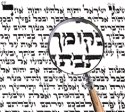
[ The following entry concerns this week's Torah reading, parashat Ki Teitzei, which contains more commandments than any other Torah portion... ]
09.01.14 (Elul 6 5774) When asked how many commandments are in the Torah, most Jews will answer 613, based on Jewish tradition (the number 613 is sometimes called "taryag" (תריג), an abbreviation for the letters Tav (400) + Resh (200) + Yod (10) + Gimmel (3) = 613). Despite several attempts made over the centuries, however, there has never been a definitive list of these commandments, and of those who tried to compile such, no two agree... Some say the number 613 comes from a fanciful midrash that teaches that since there are 365 days in a year (corresponding to the 365 negative commandments) and 248 "parts" of the body (corresponding to the positive commandments), each day we should use our body to serve God. Regardless of the exact count, however, the Talmud followed the Apostle Paul by understanding all the Torah's commandments to be derived from the Ten Commandments given at Sinai, the most basic of which is the very First Commandment, namely, "I AM the LORD your God (אָנכִי יְהוָה אֱלהֶיךָ) who brought you out of Egypt, out of the house of slavery" (Exod. 20:2). This foundational commandment was later restated by the prophet Habbakuk as: וְצַדִּיק בֶּאֱמוּנָתוֹ יִחְיֶה / "The righteous person will live by faith in God" (Hab. 2:4; Gal. 3:11; Heb. 10:38).
Note: I stated that the sages of the Talmud "followed" the Apostle Paul's line of thinking on this subject since Paul wrote centuries before the Talmud was compiled...
|






















































